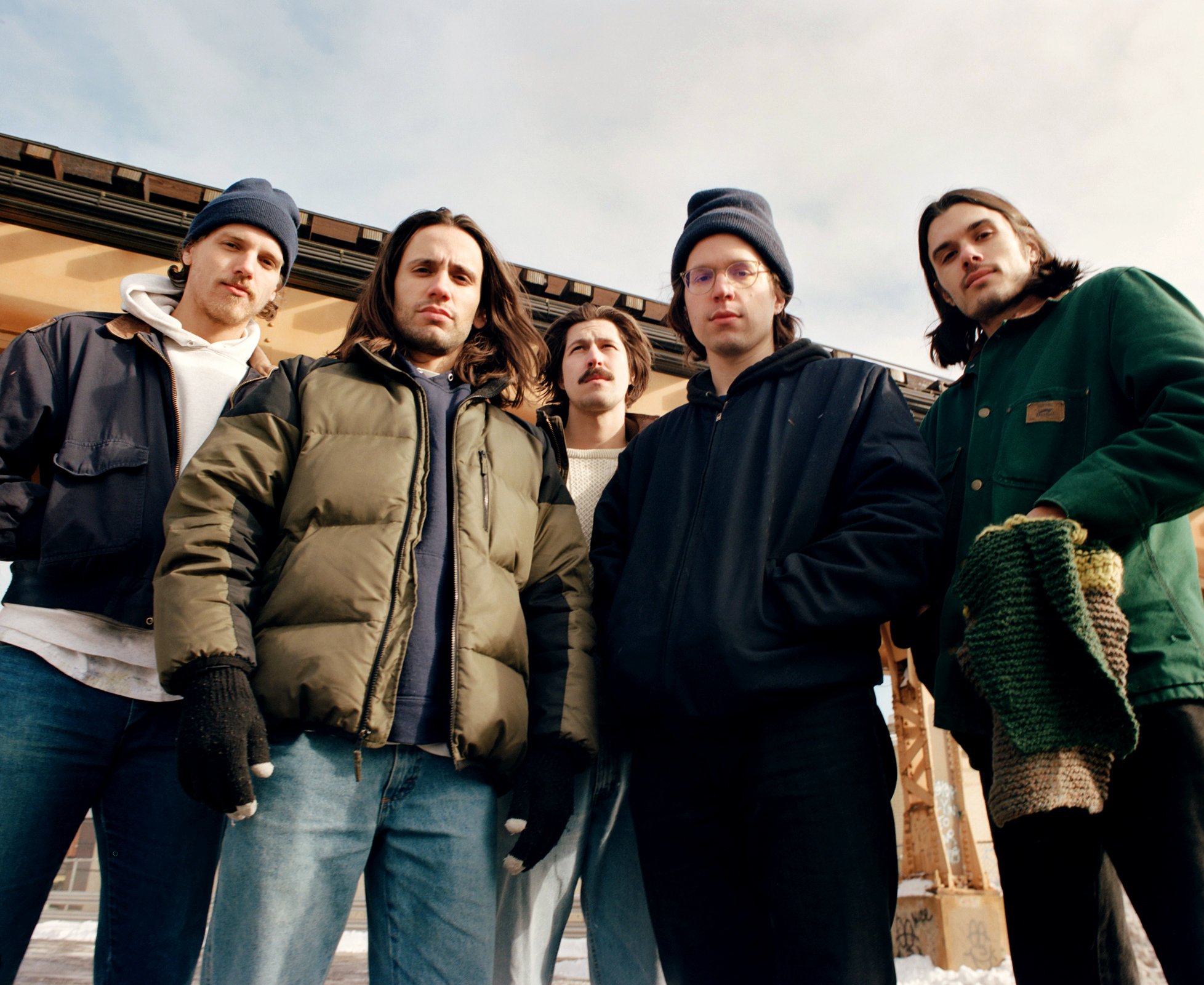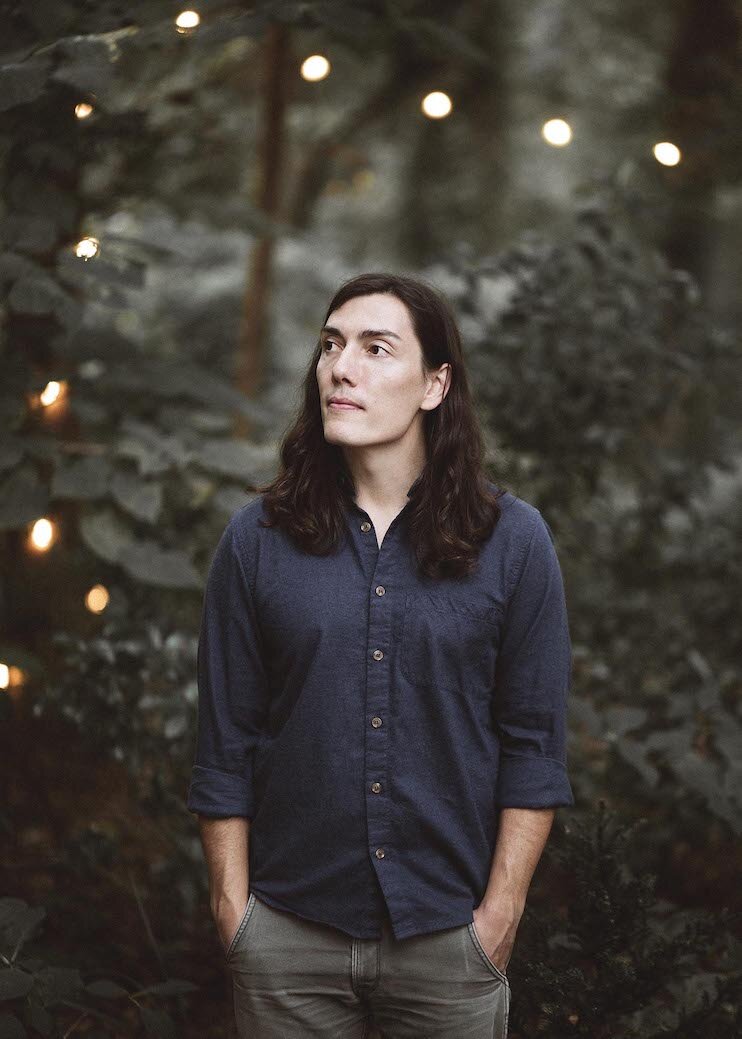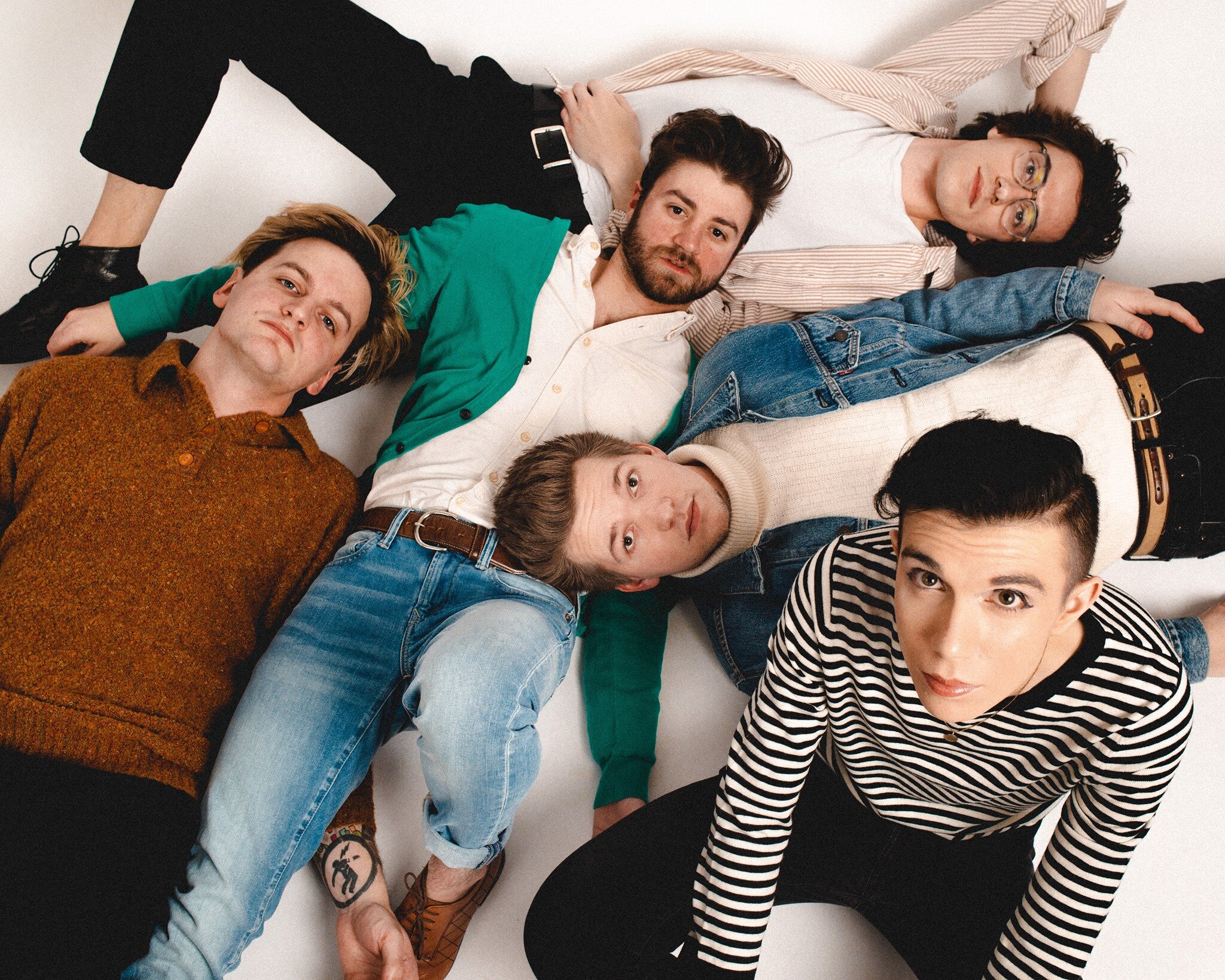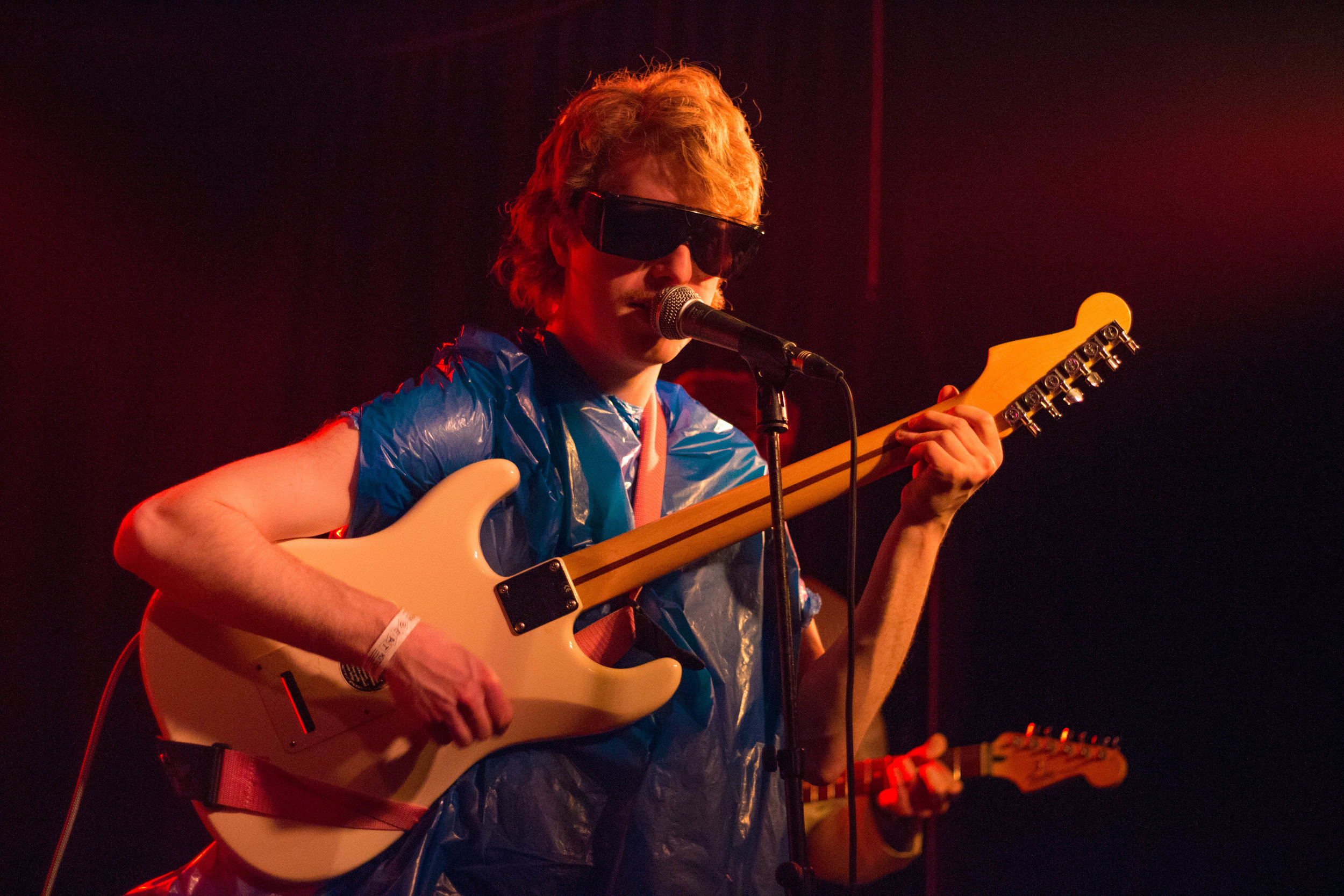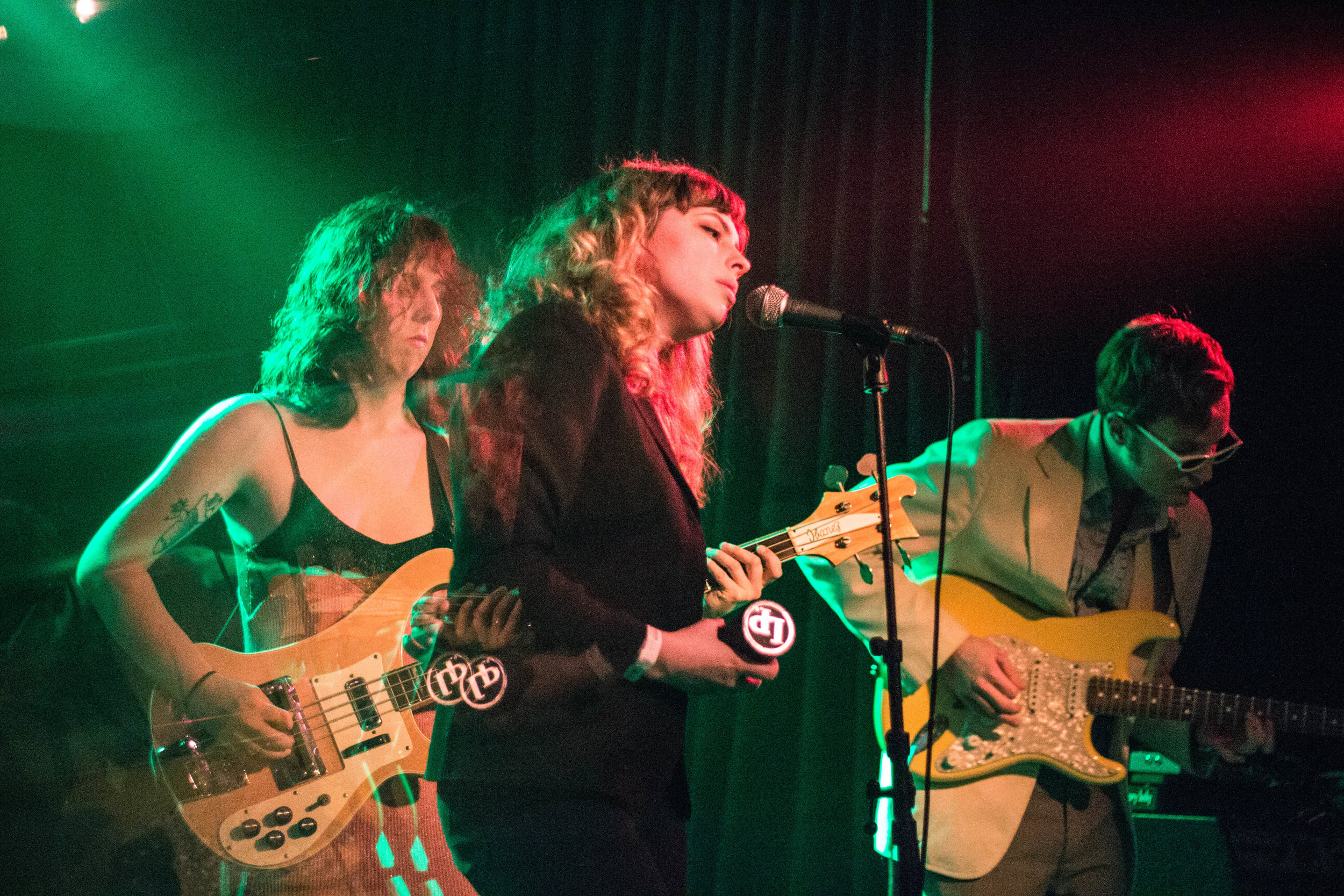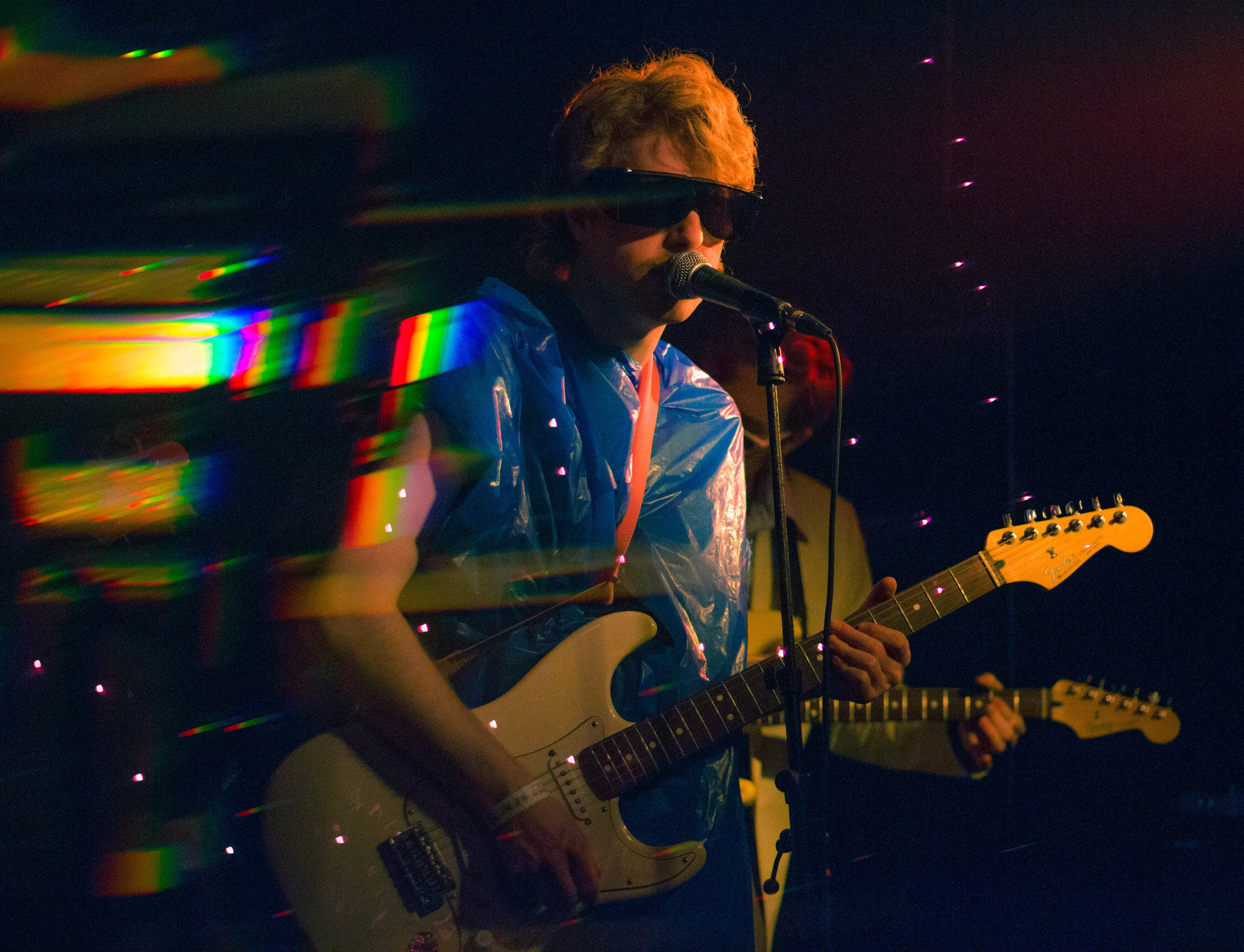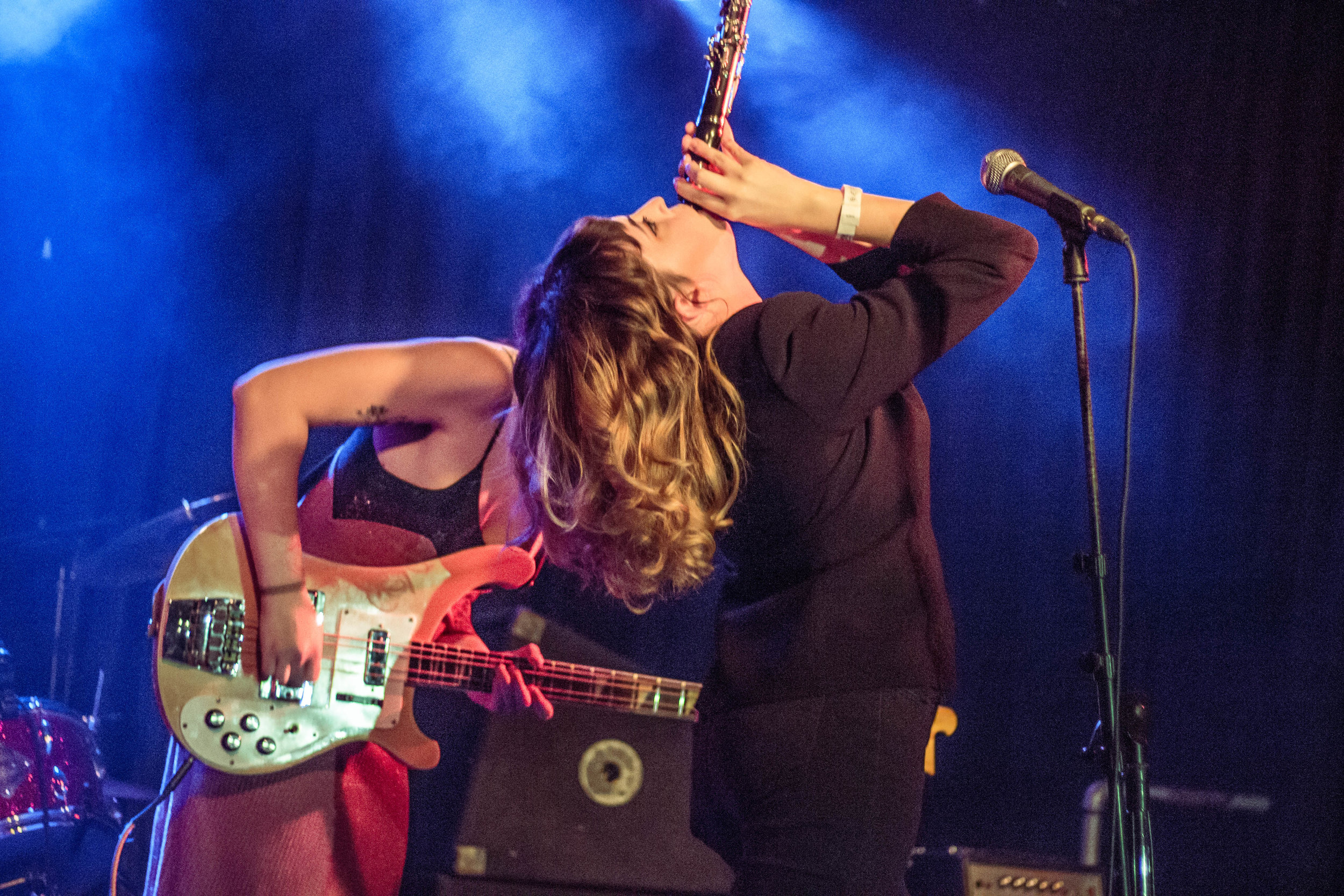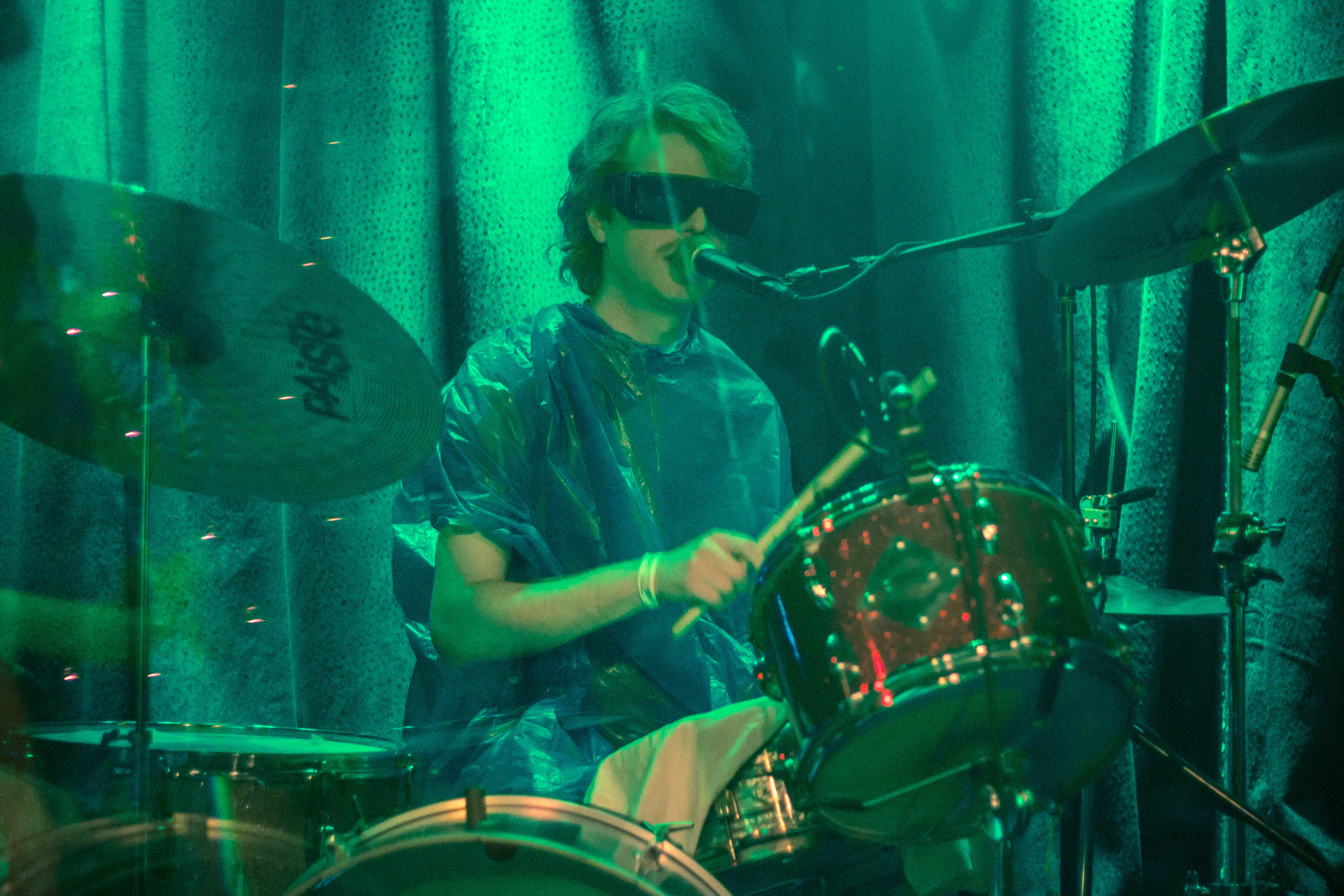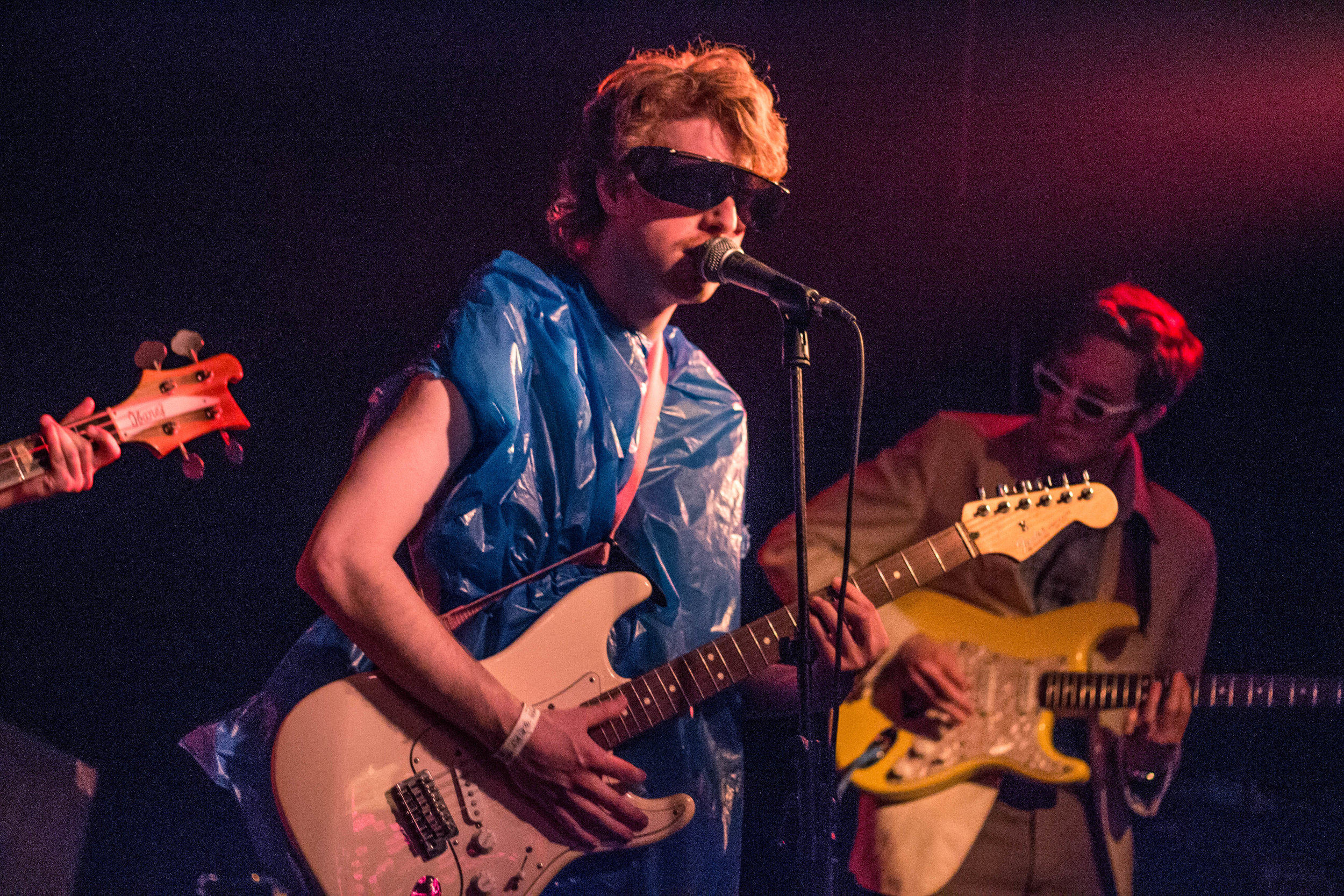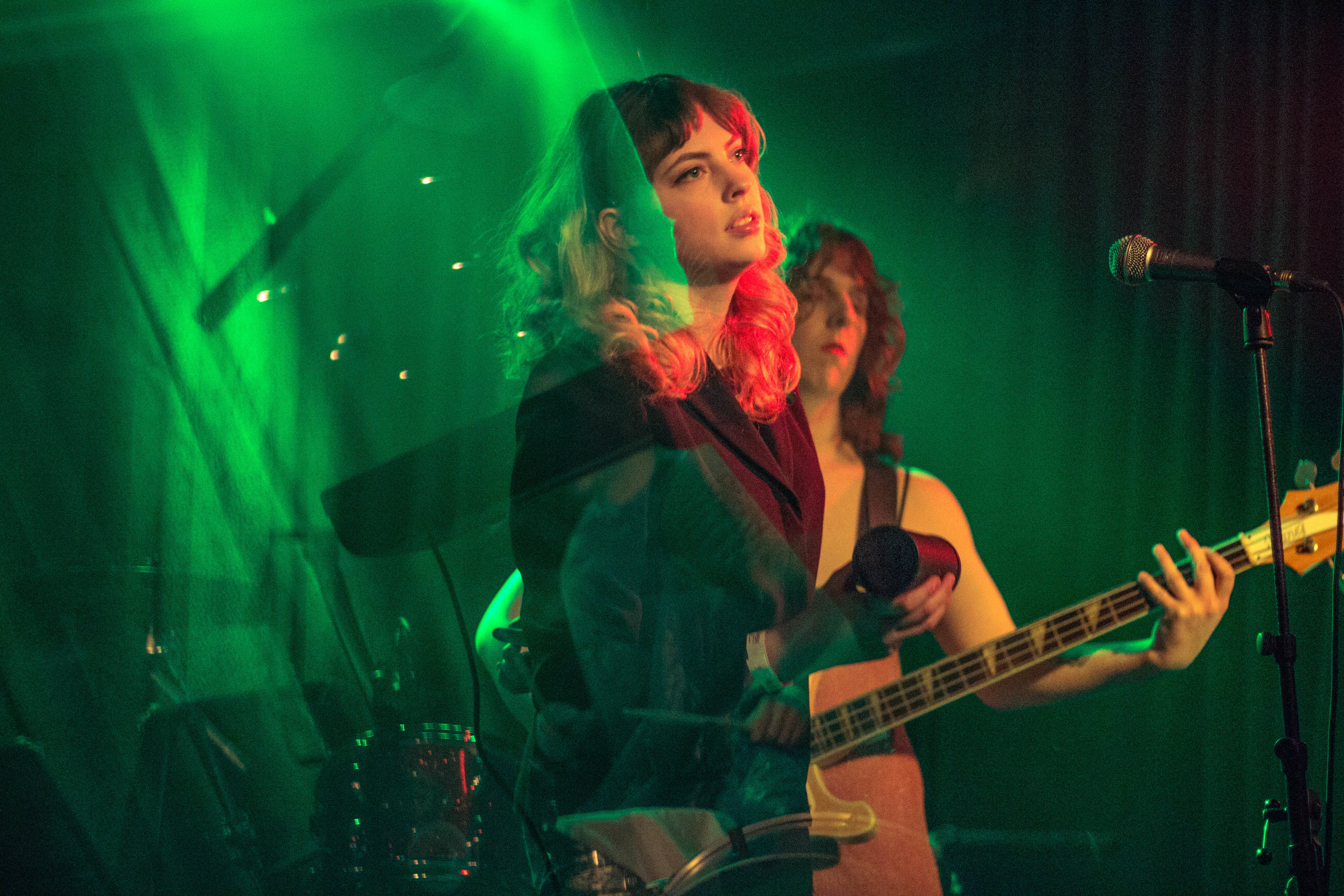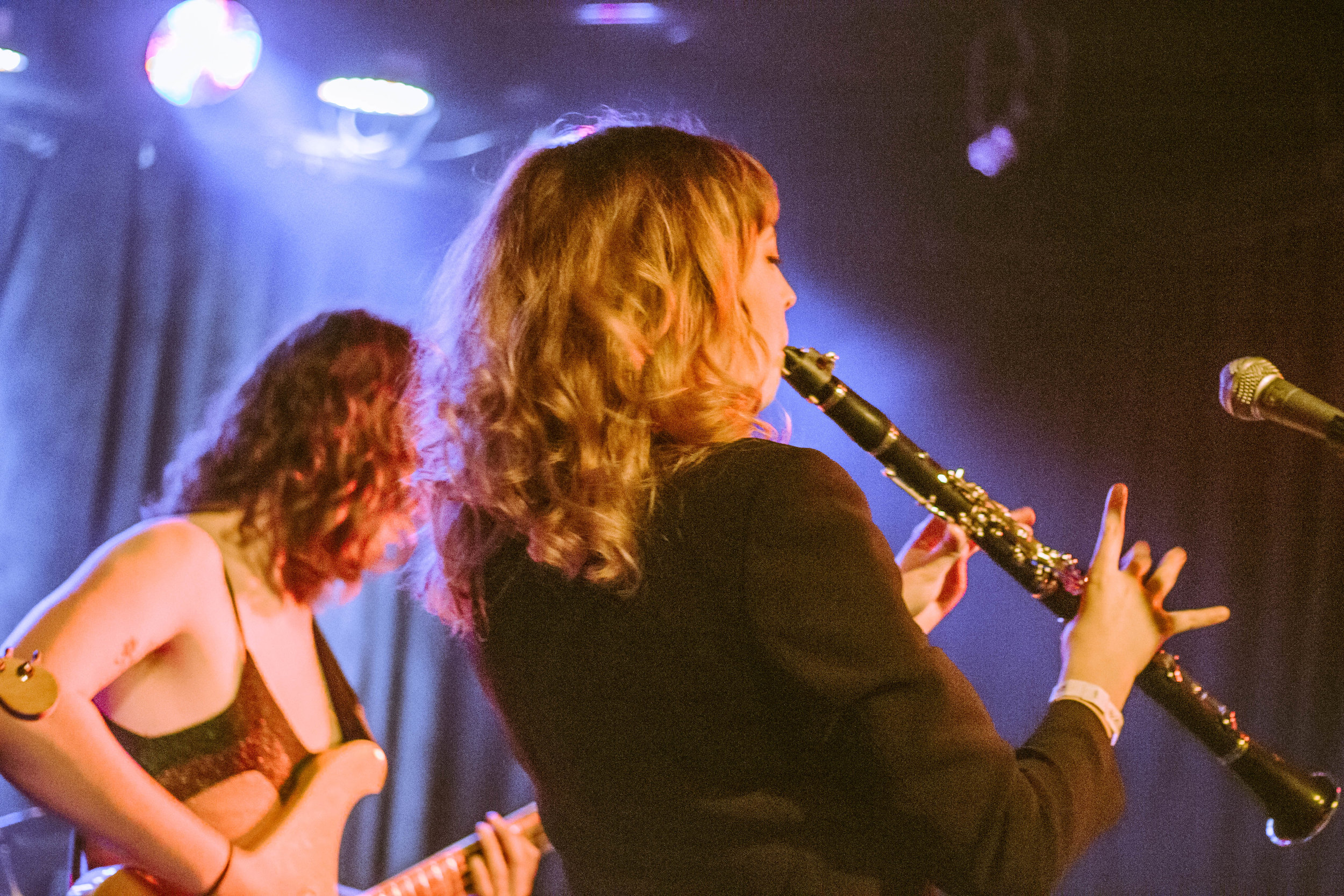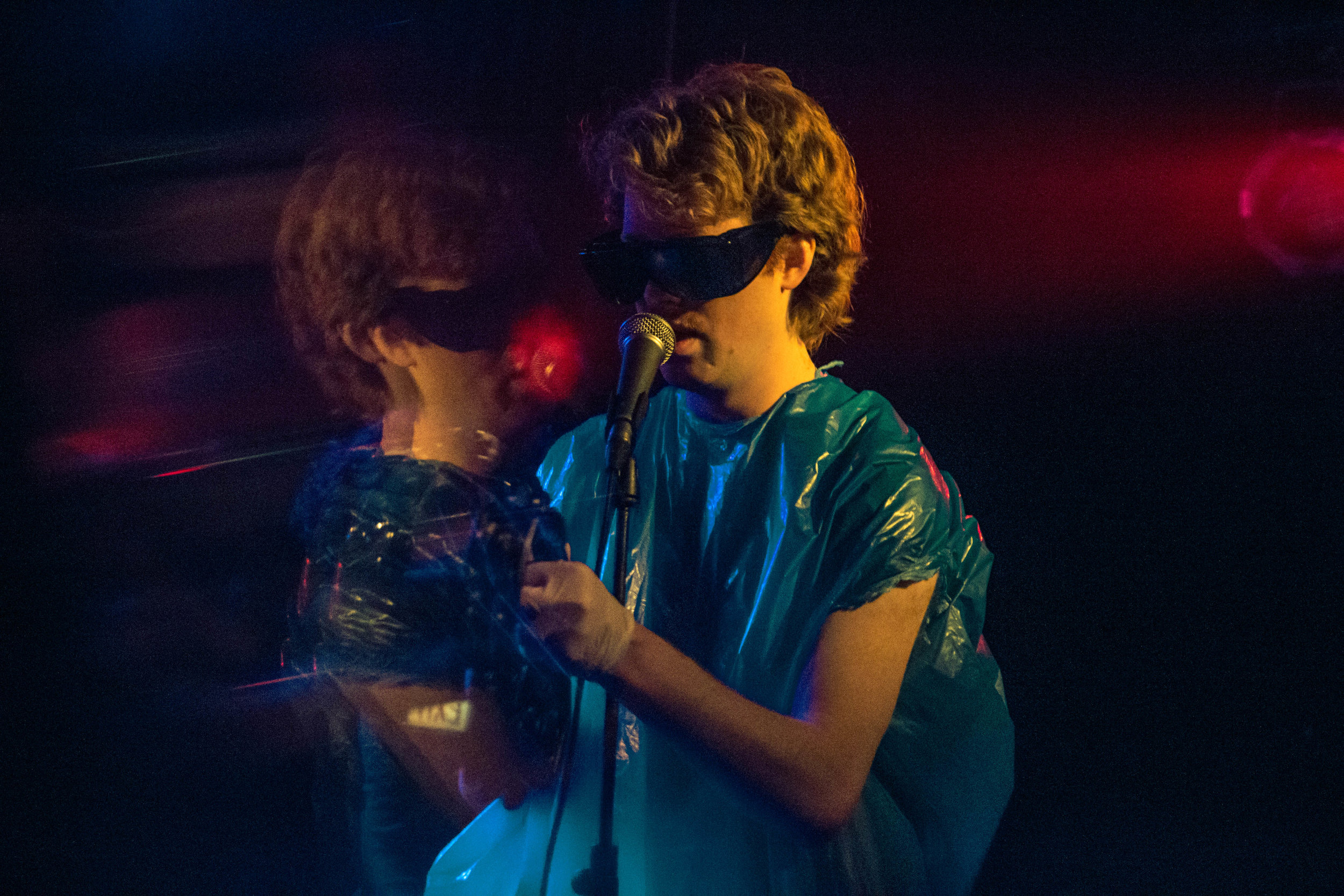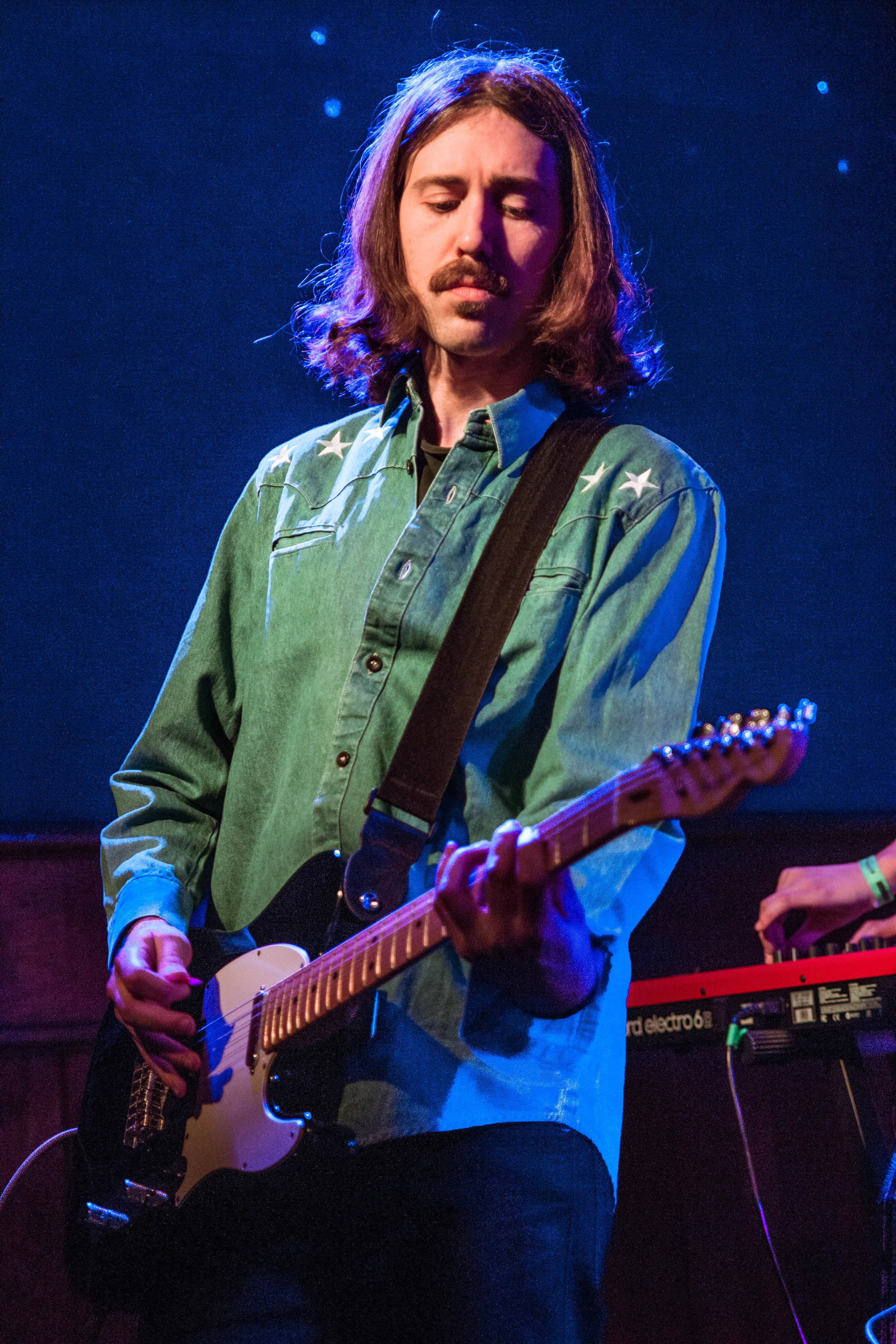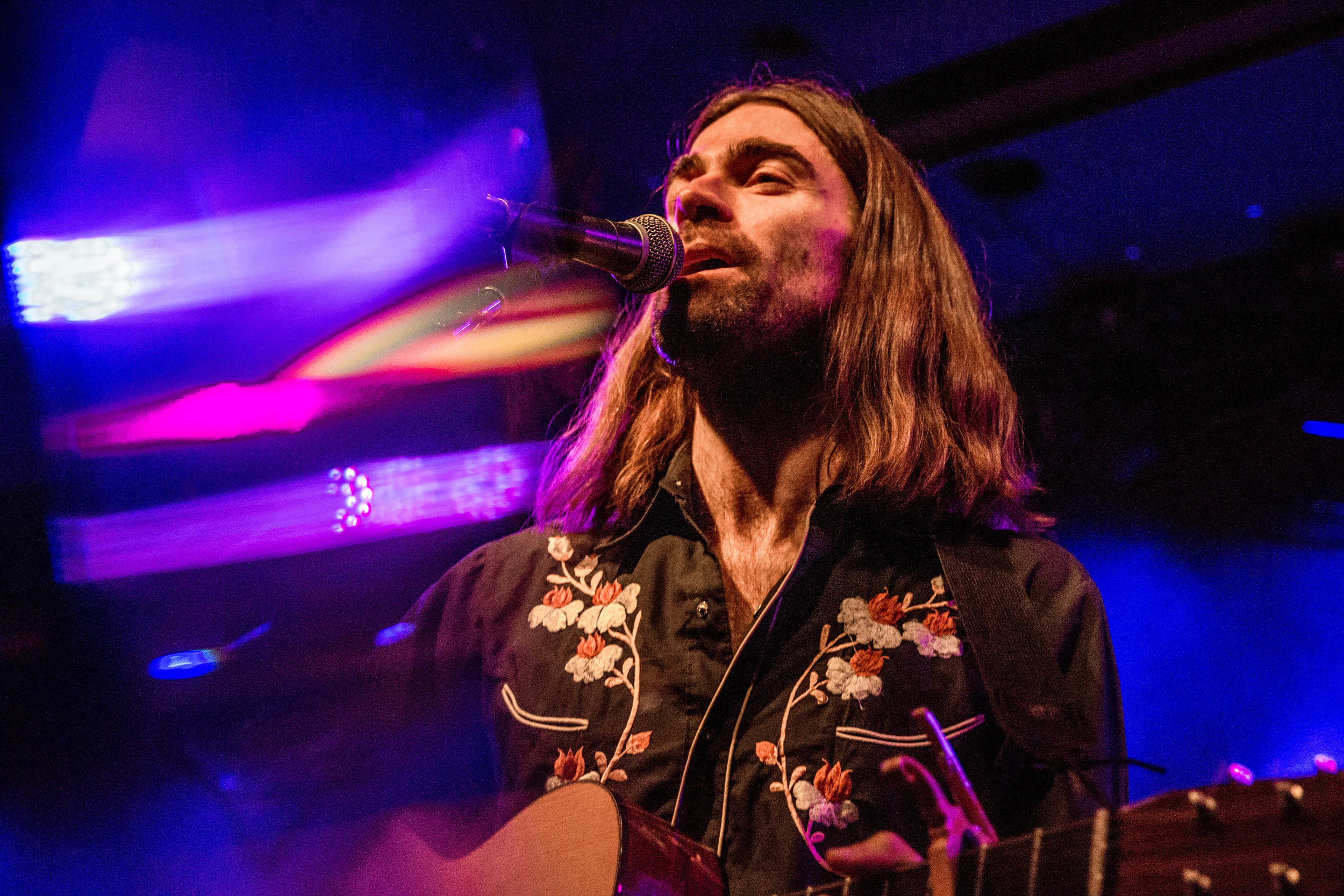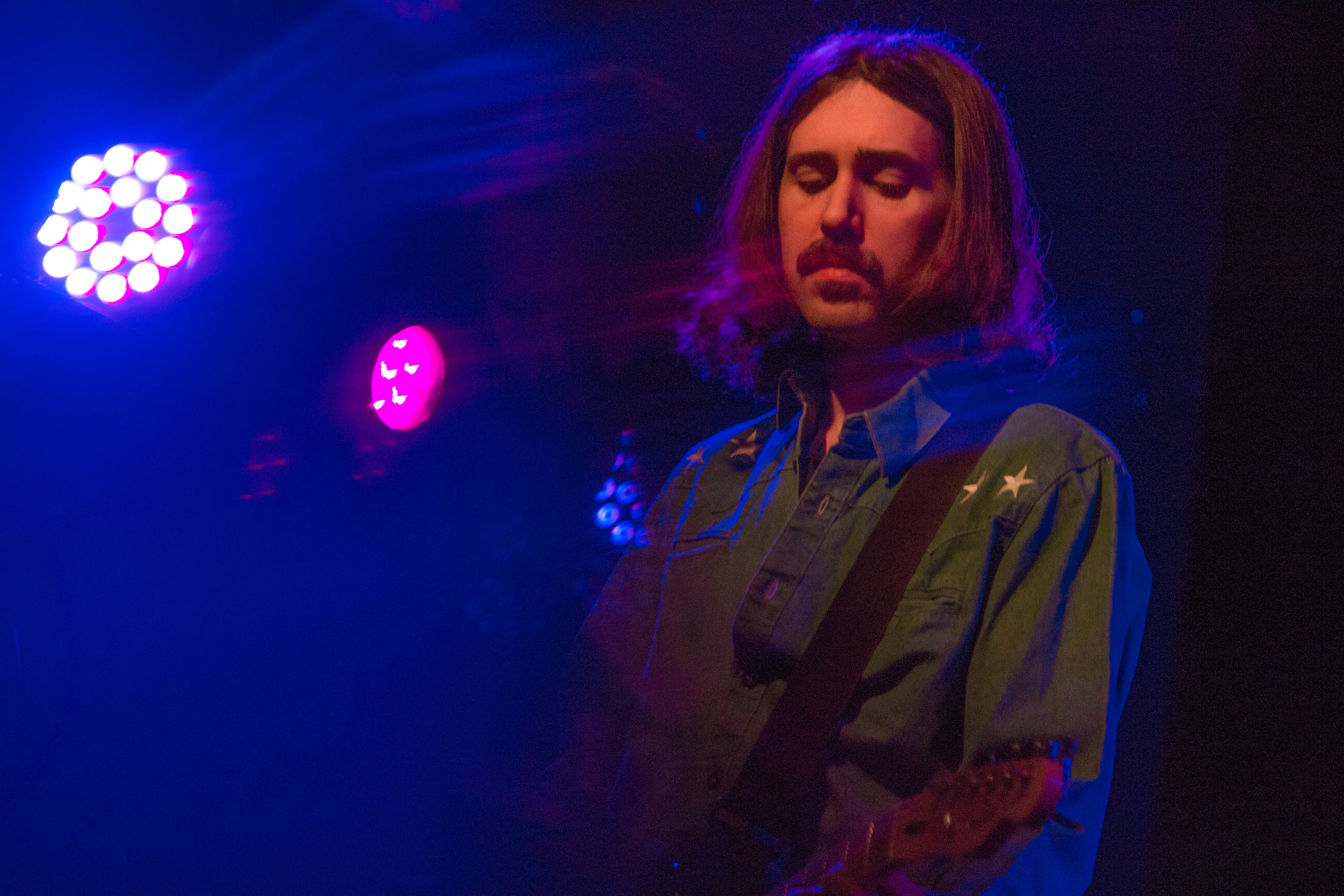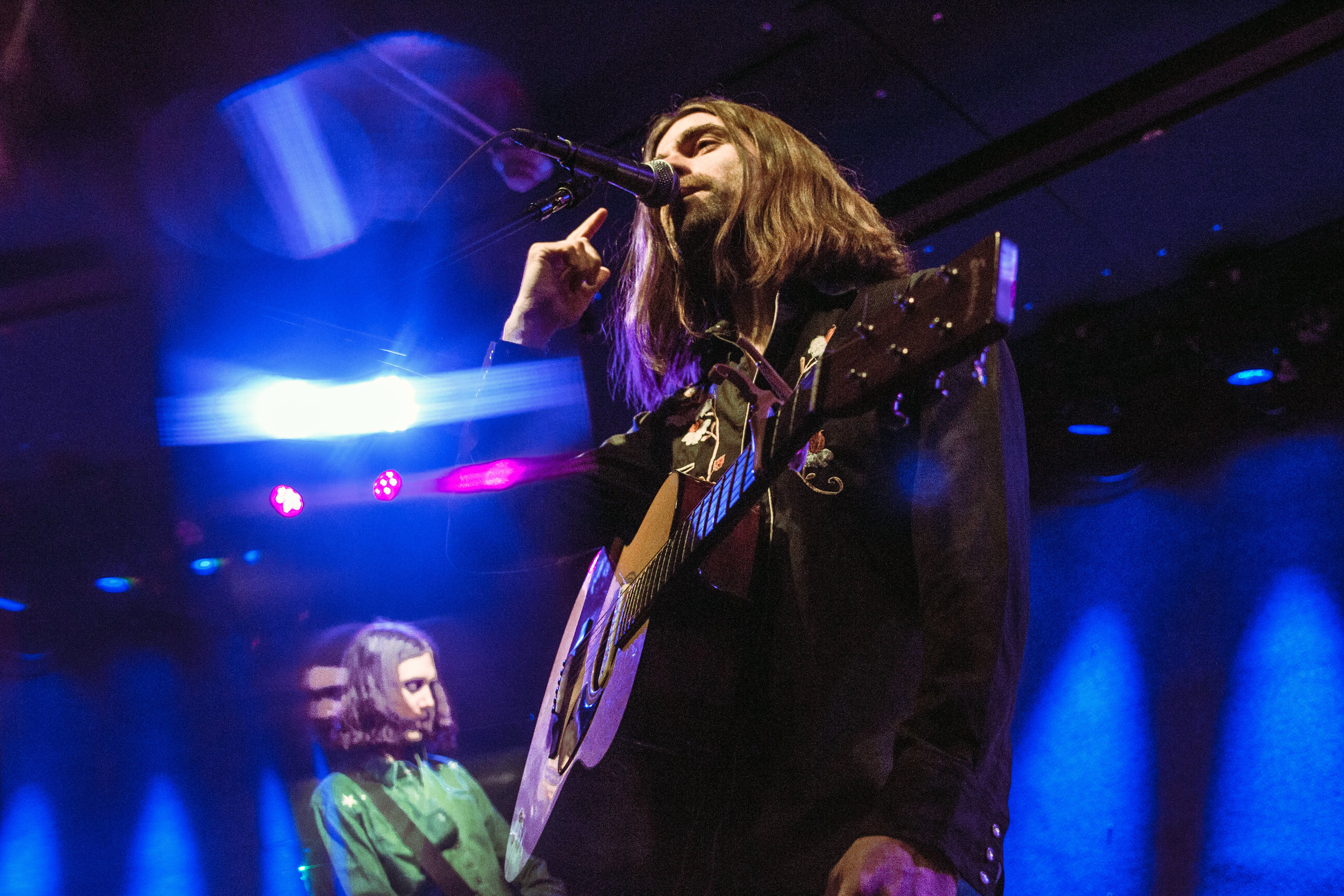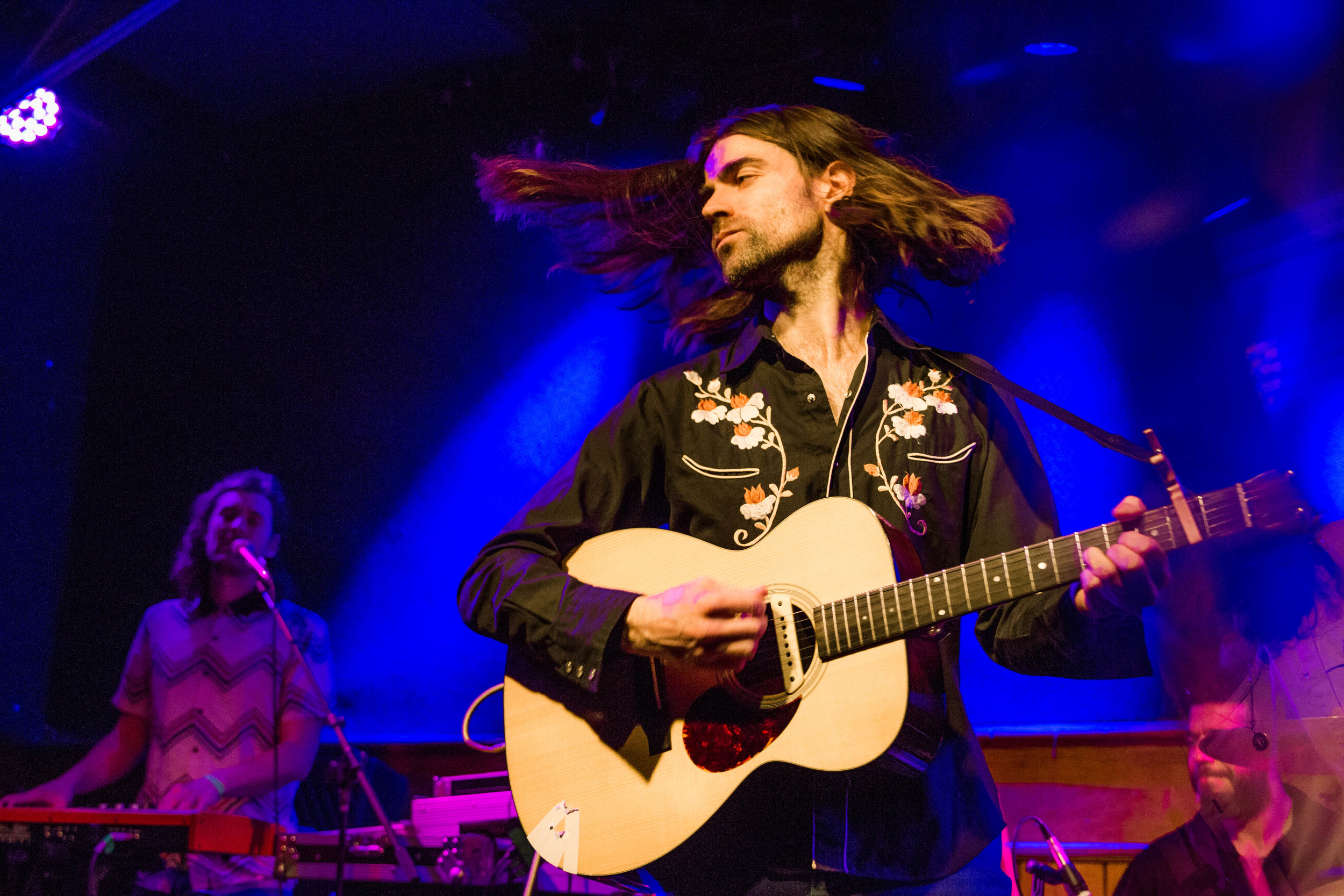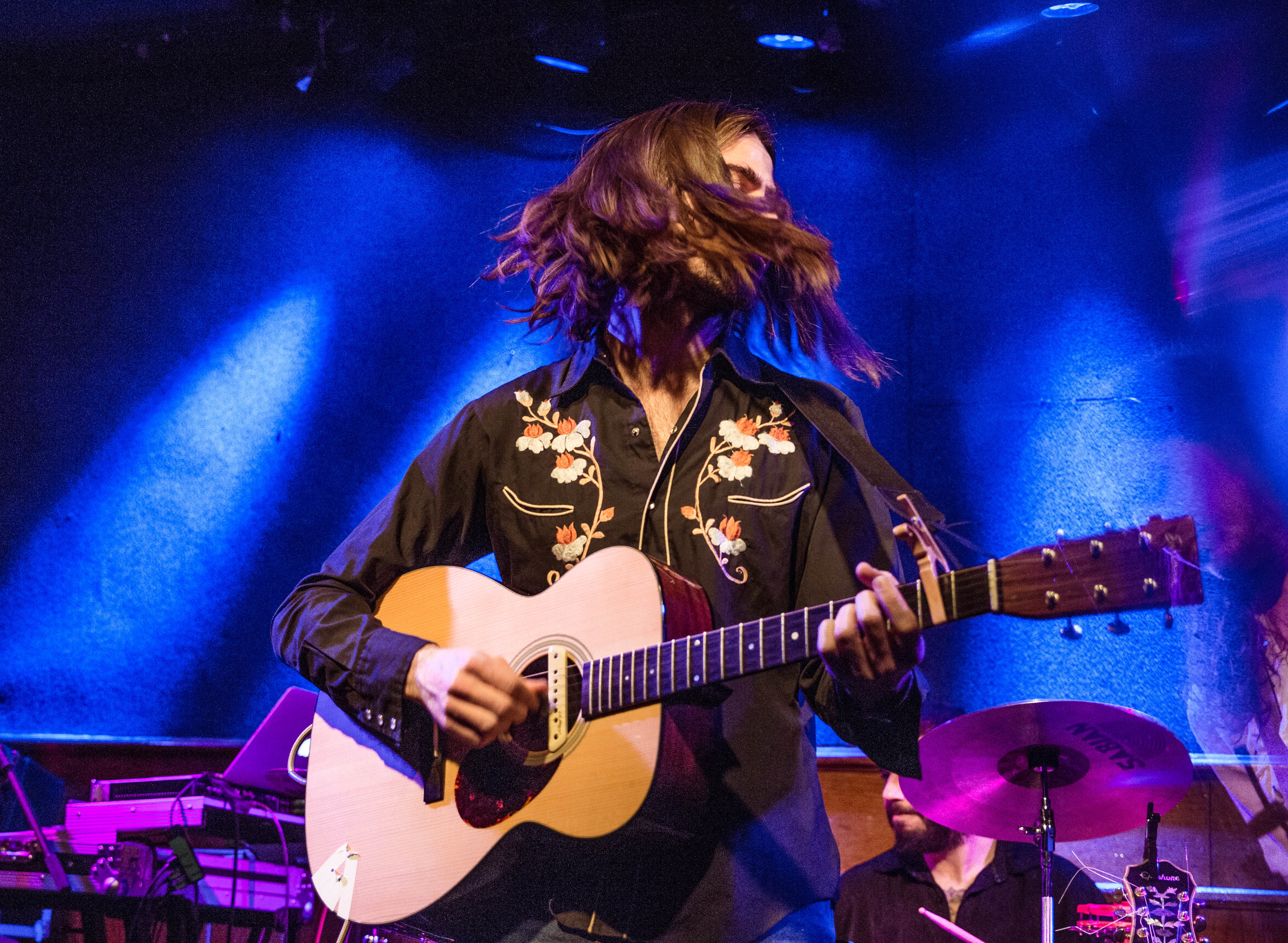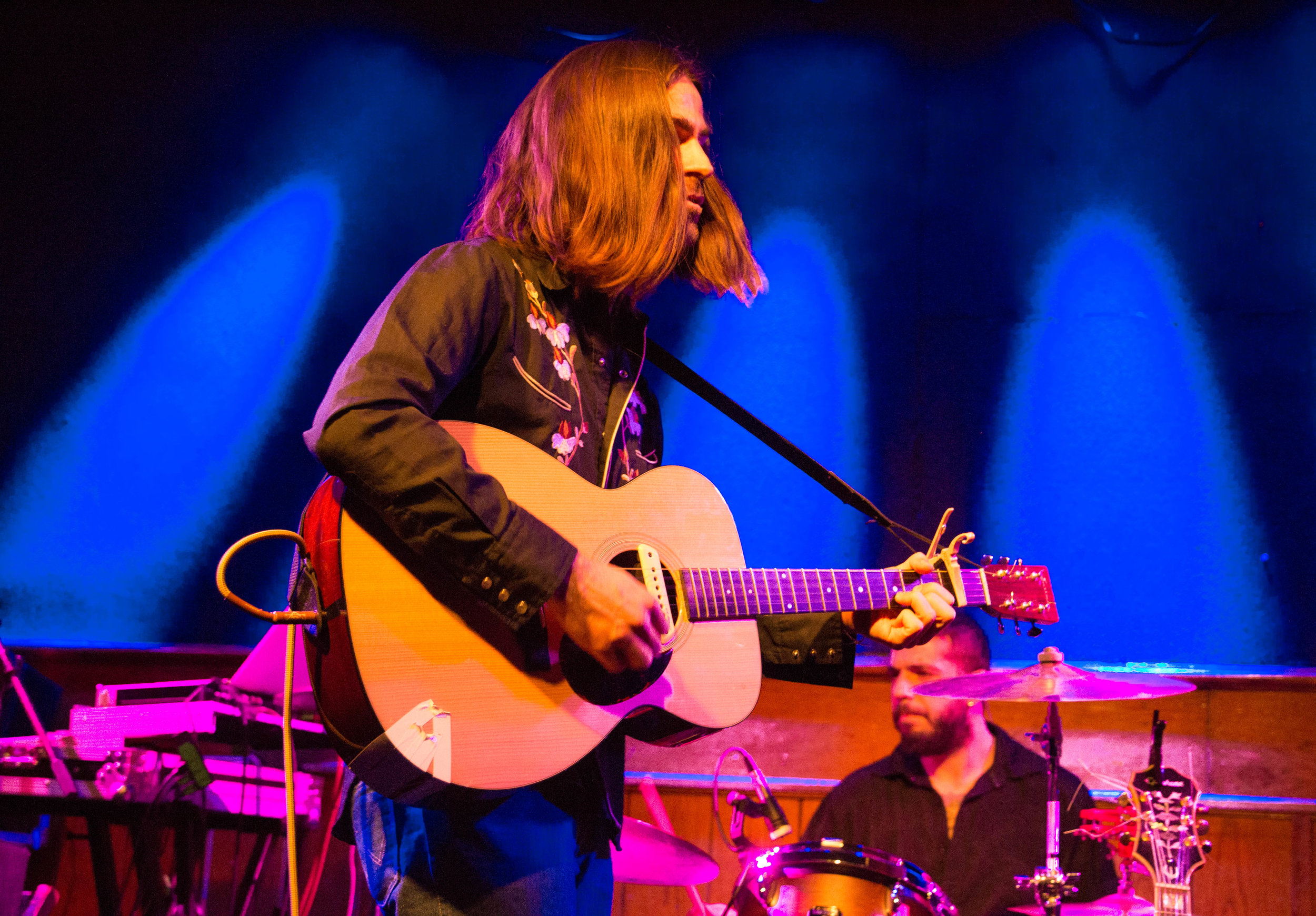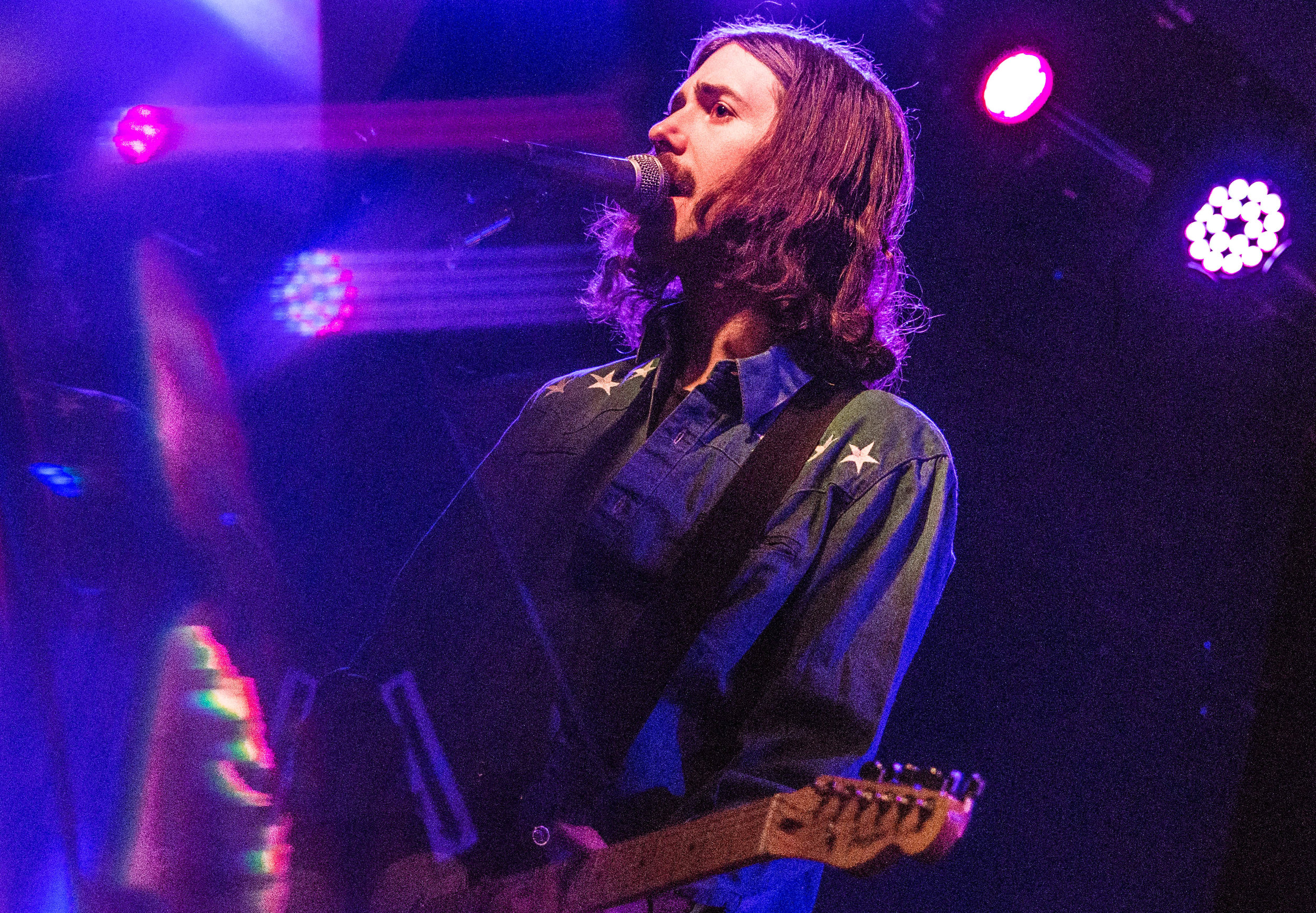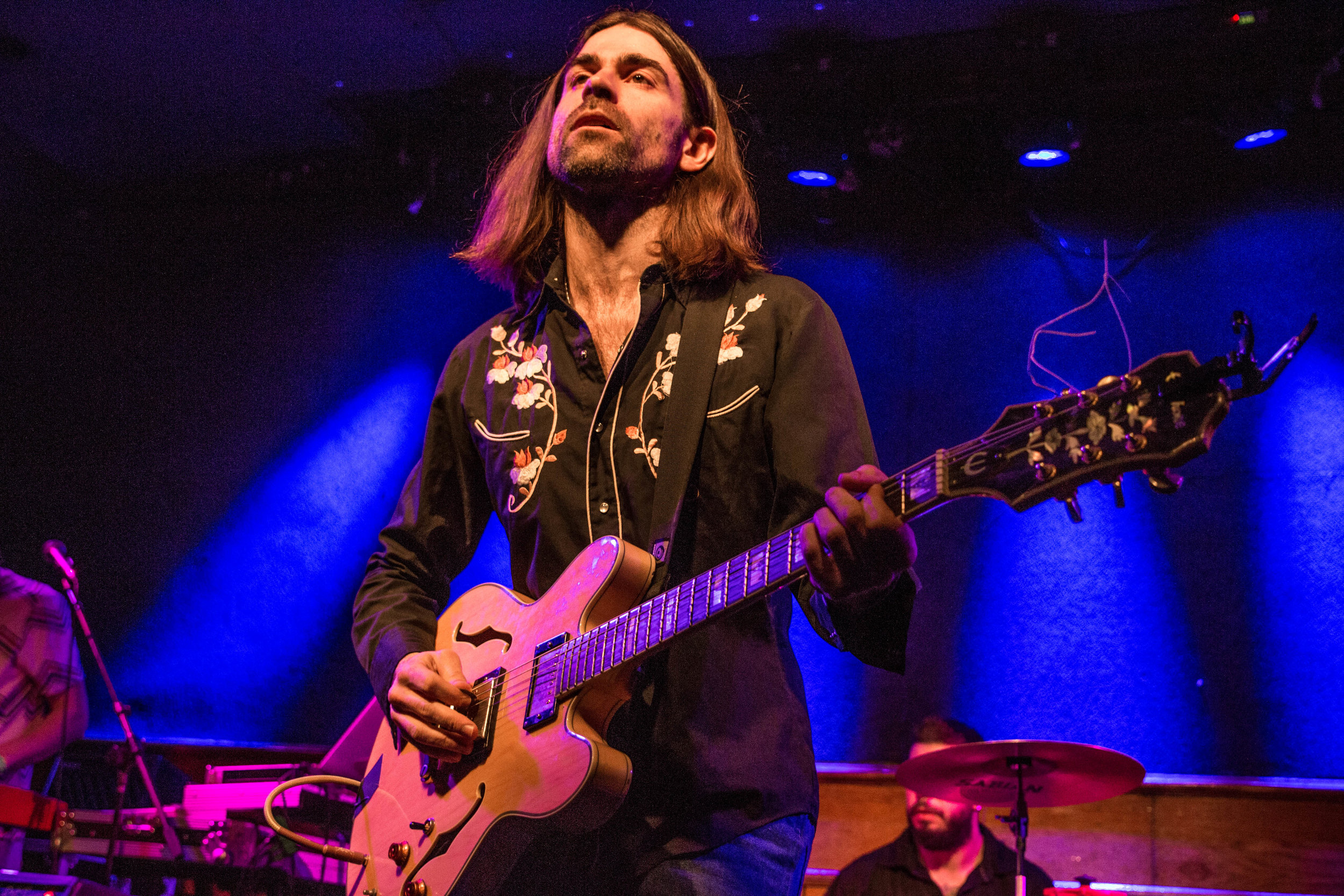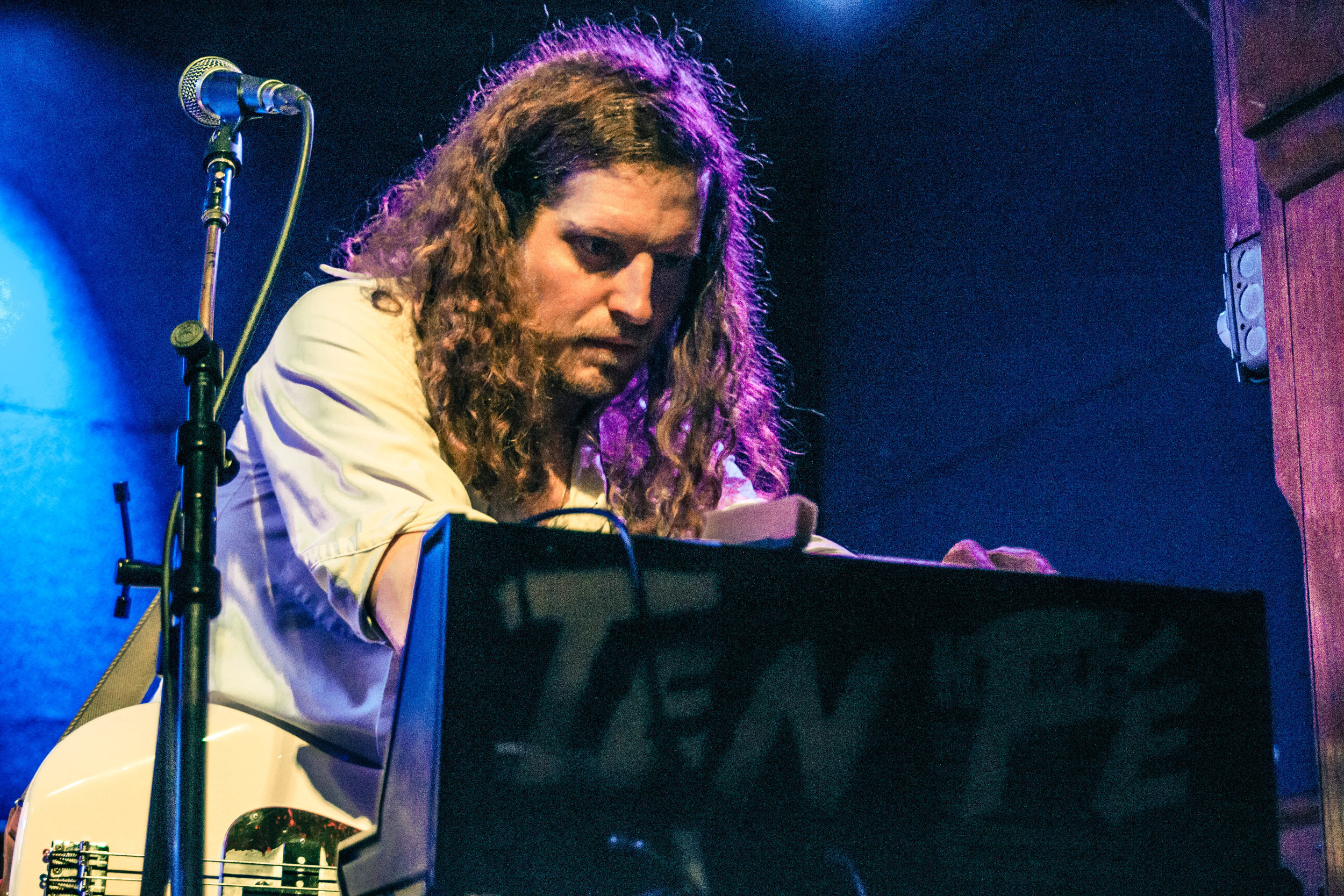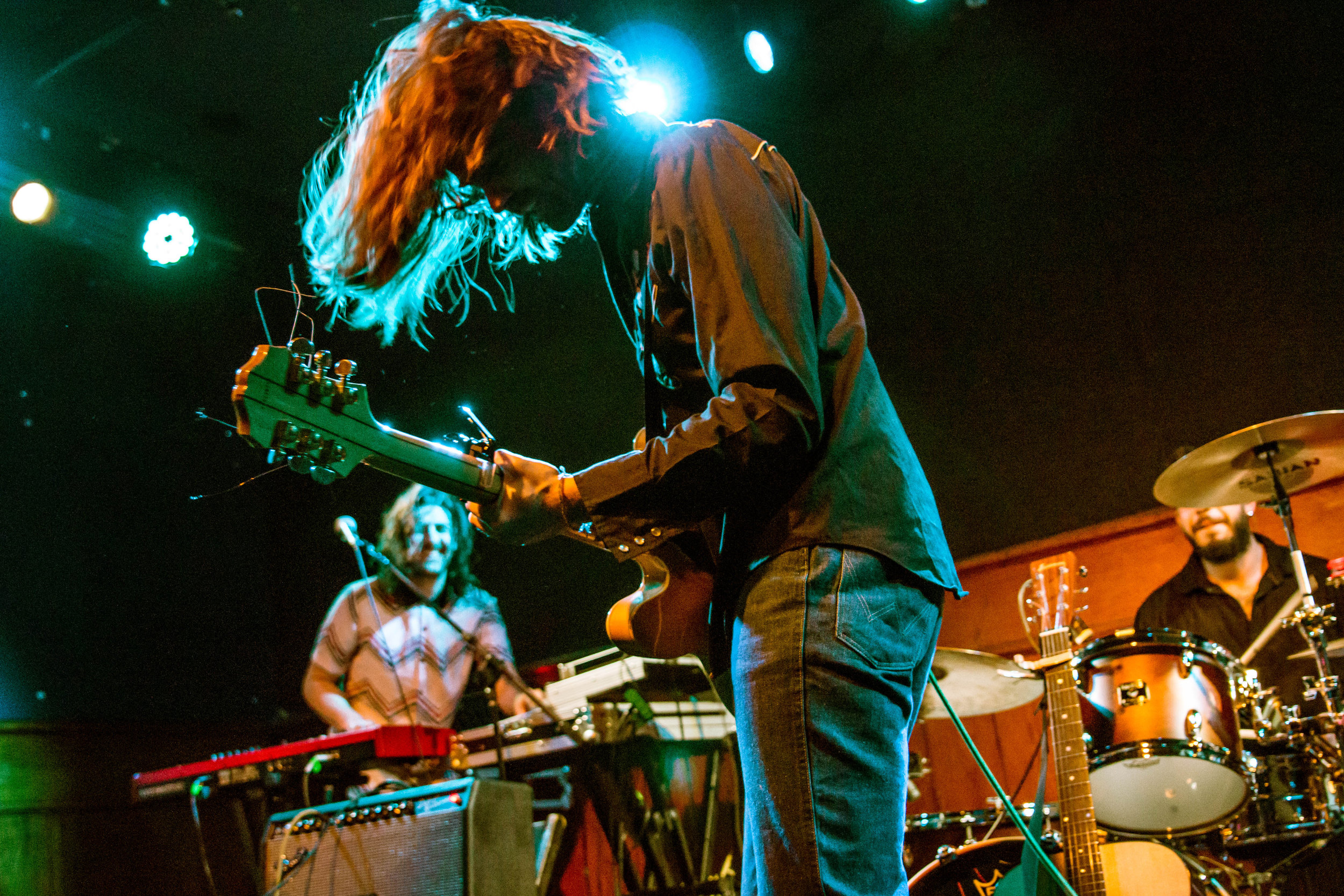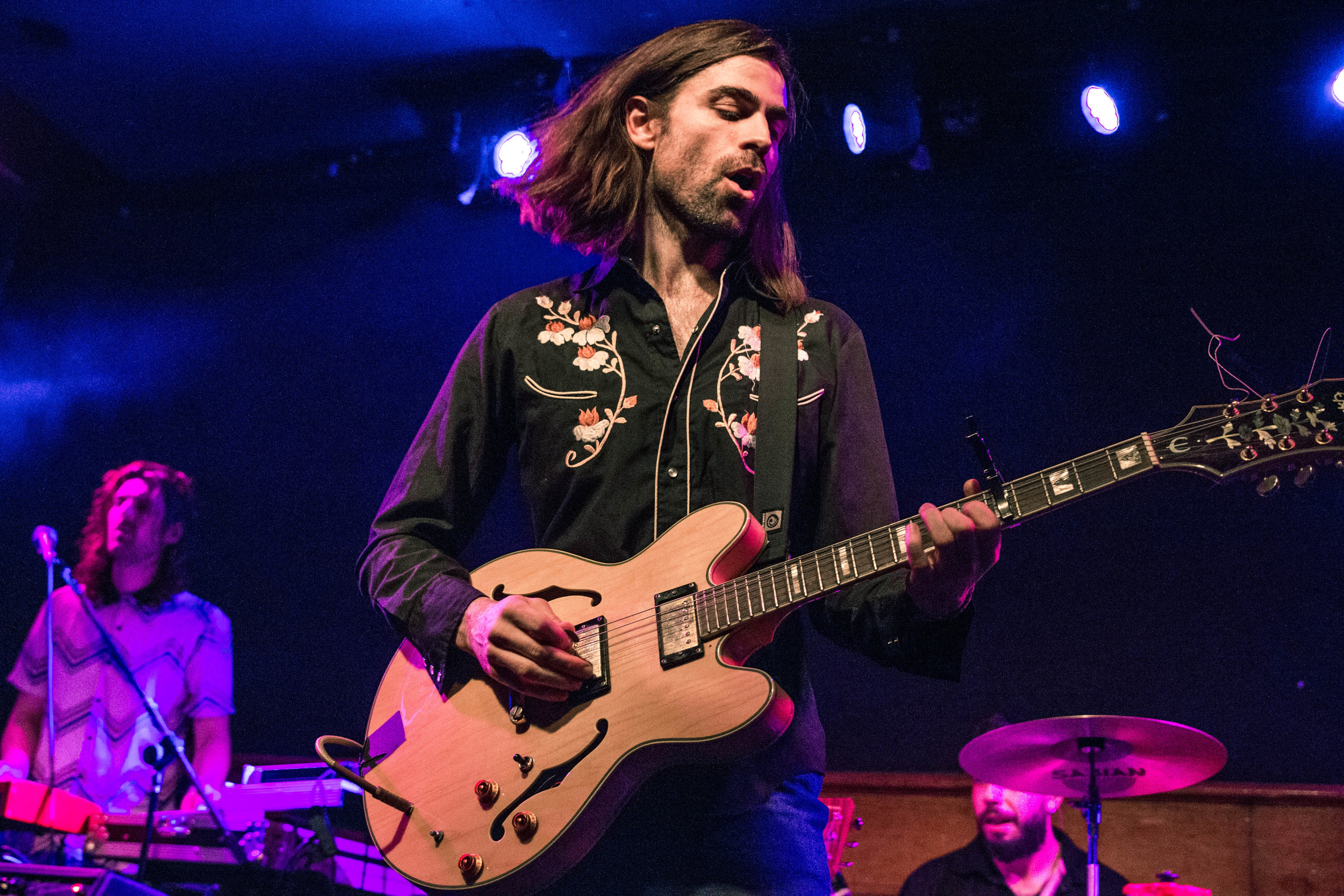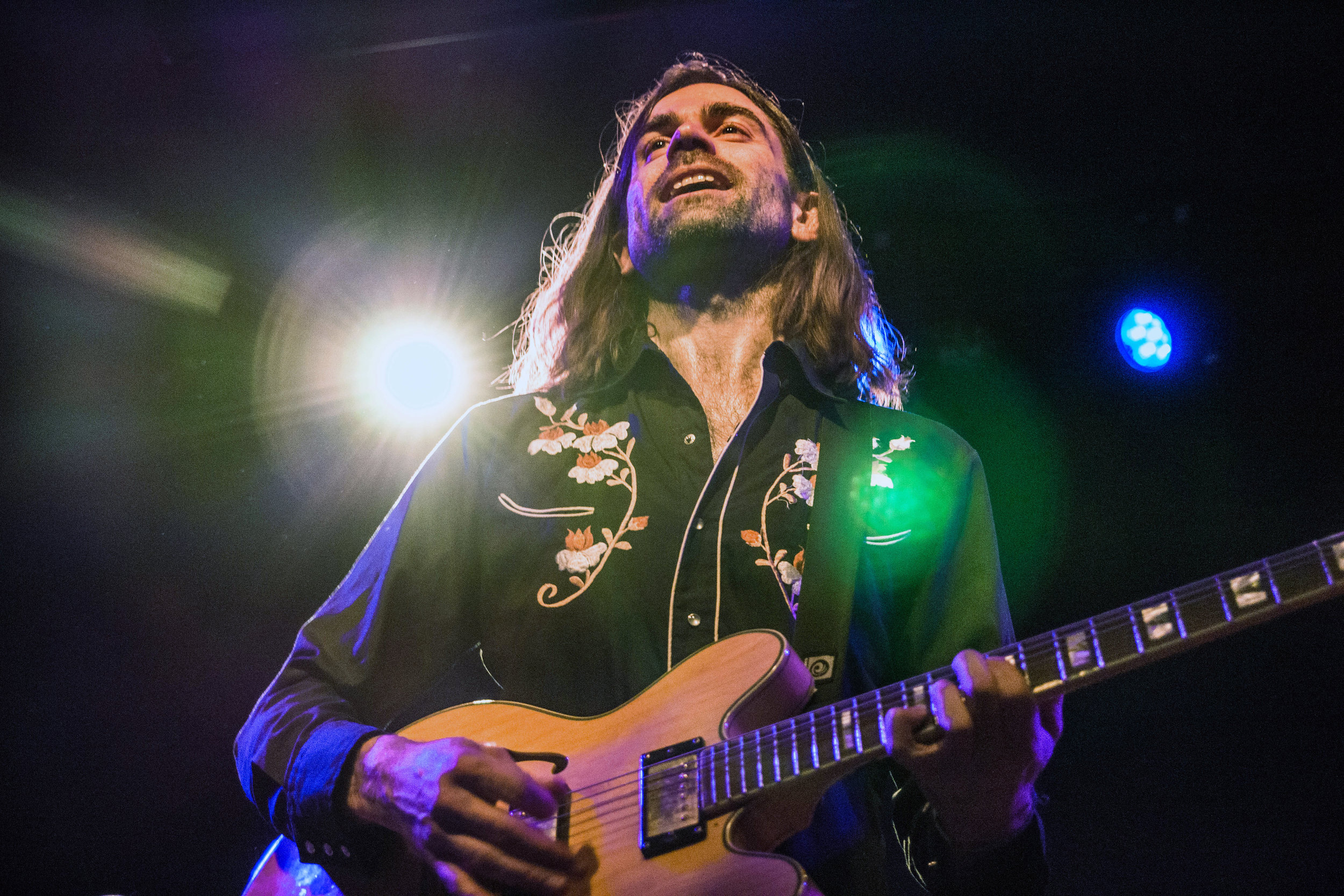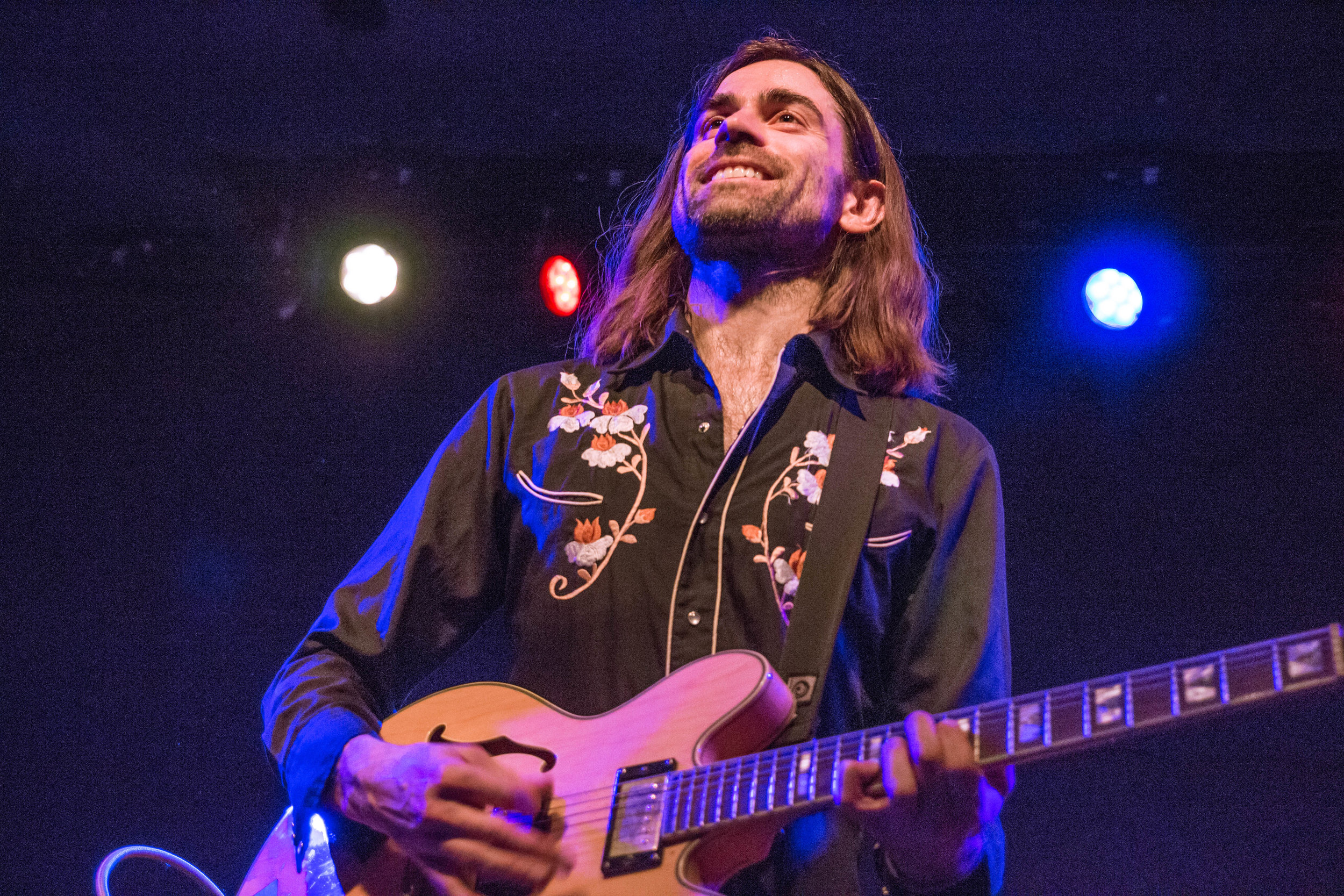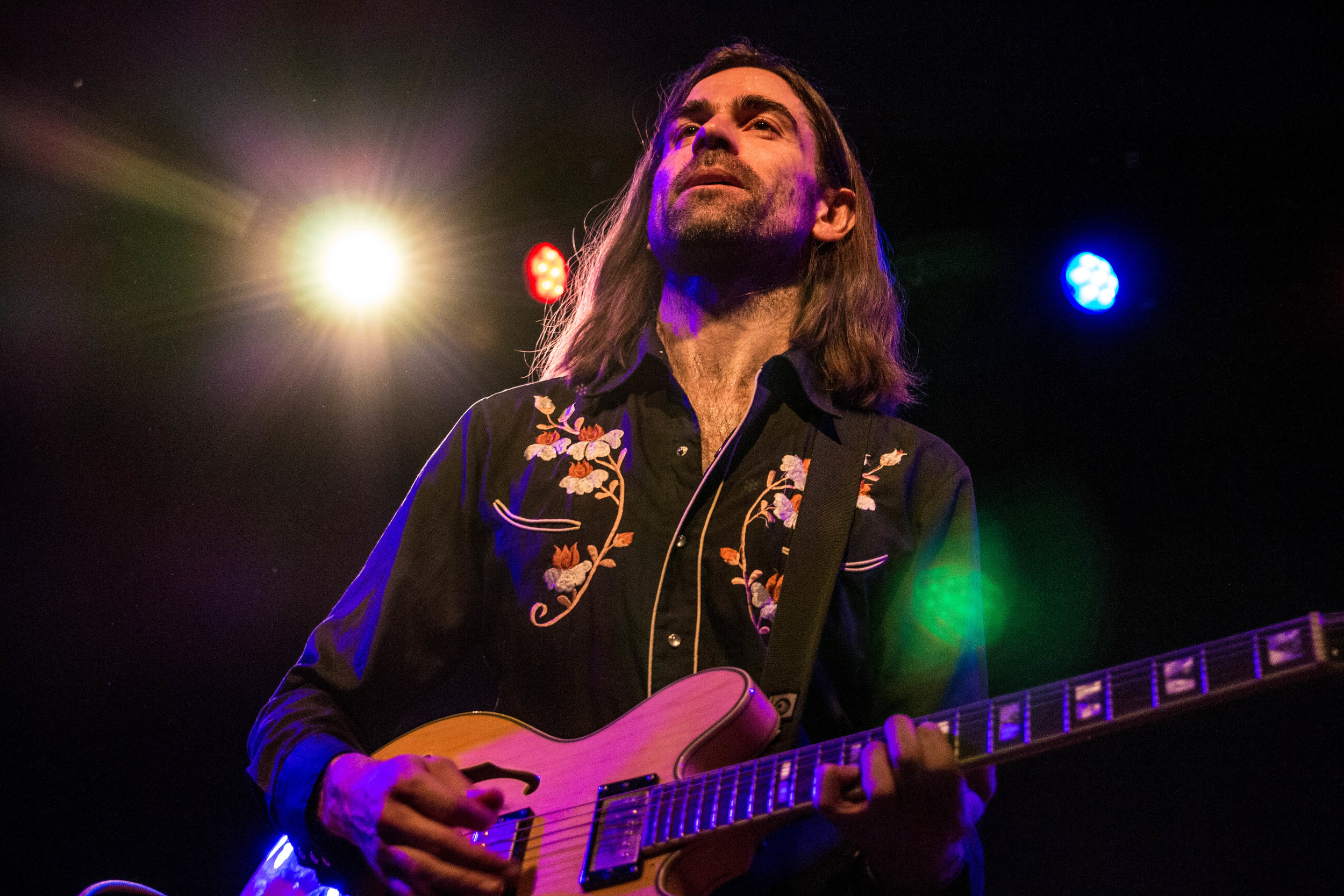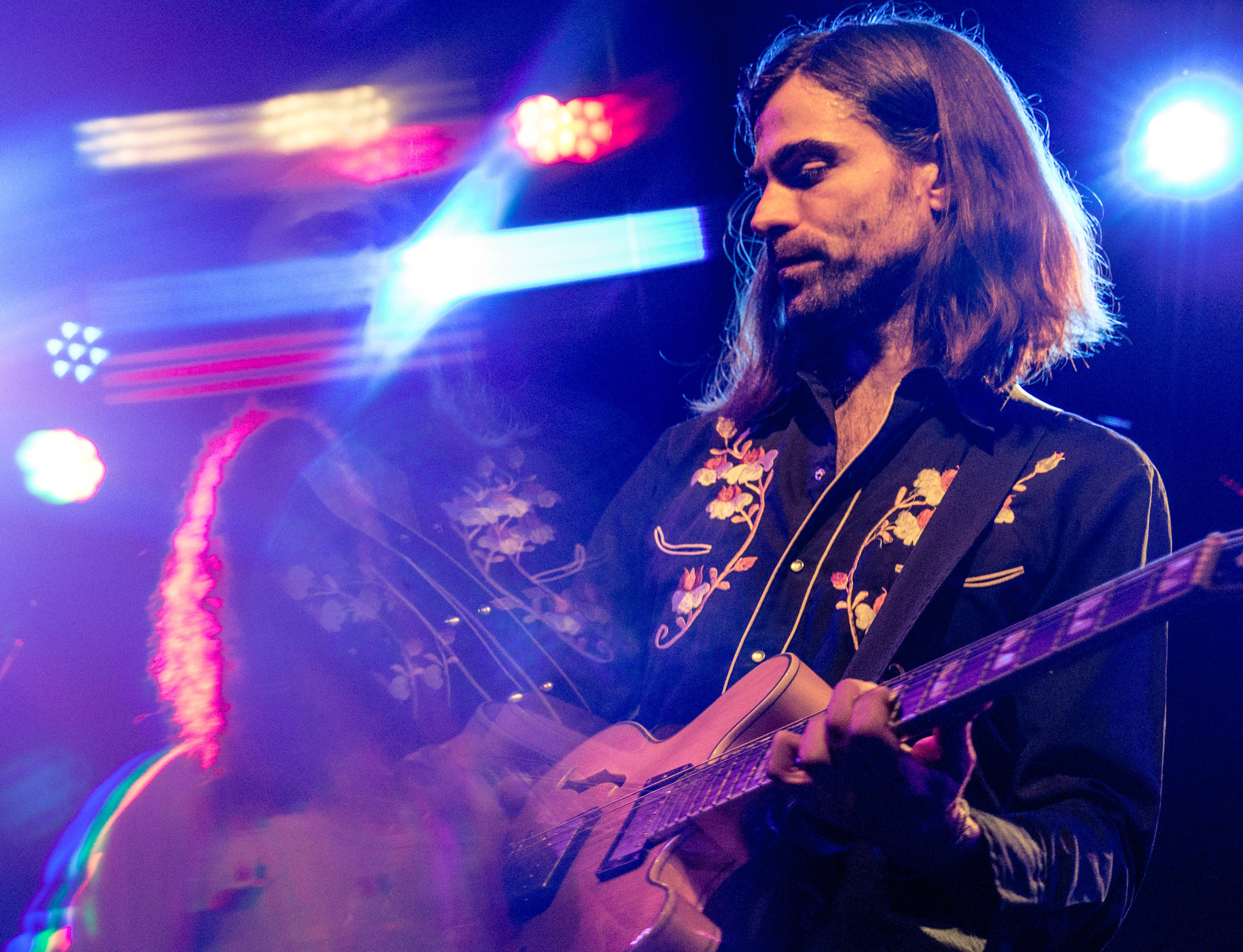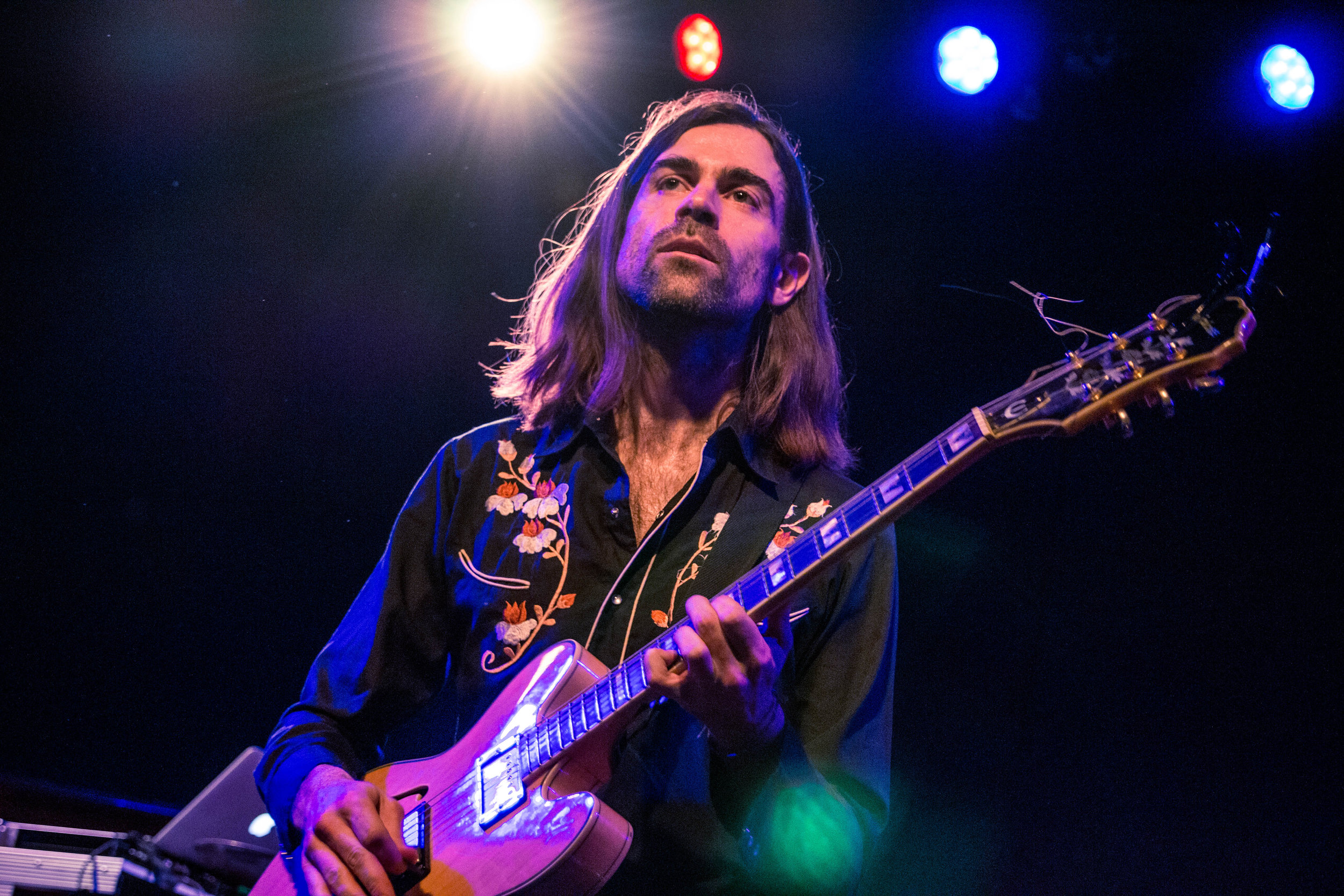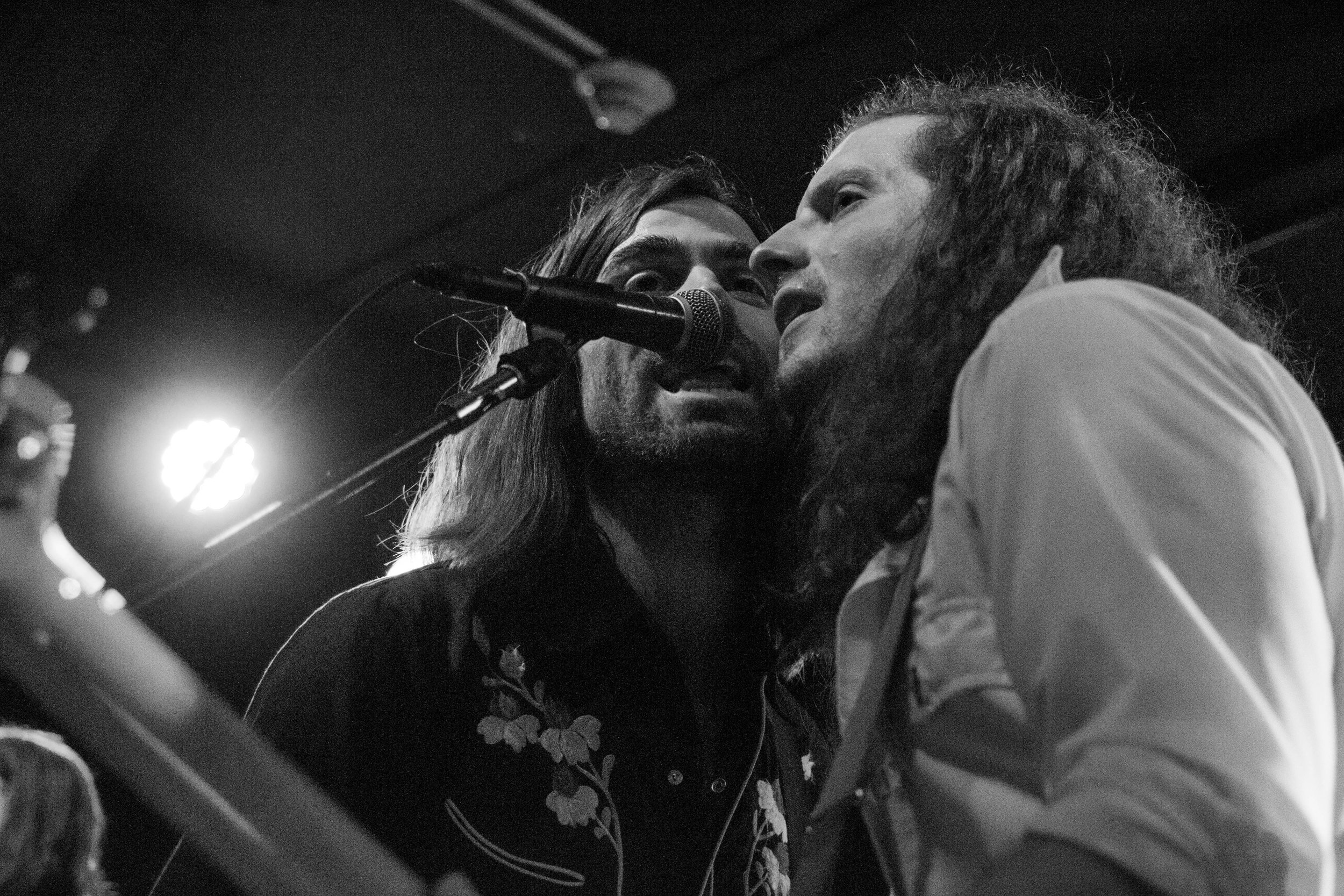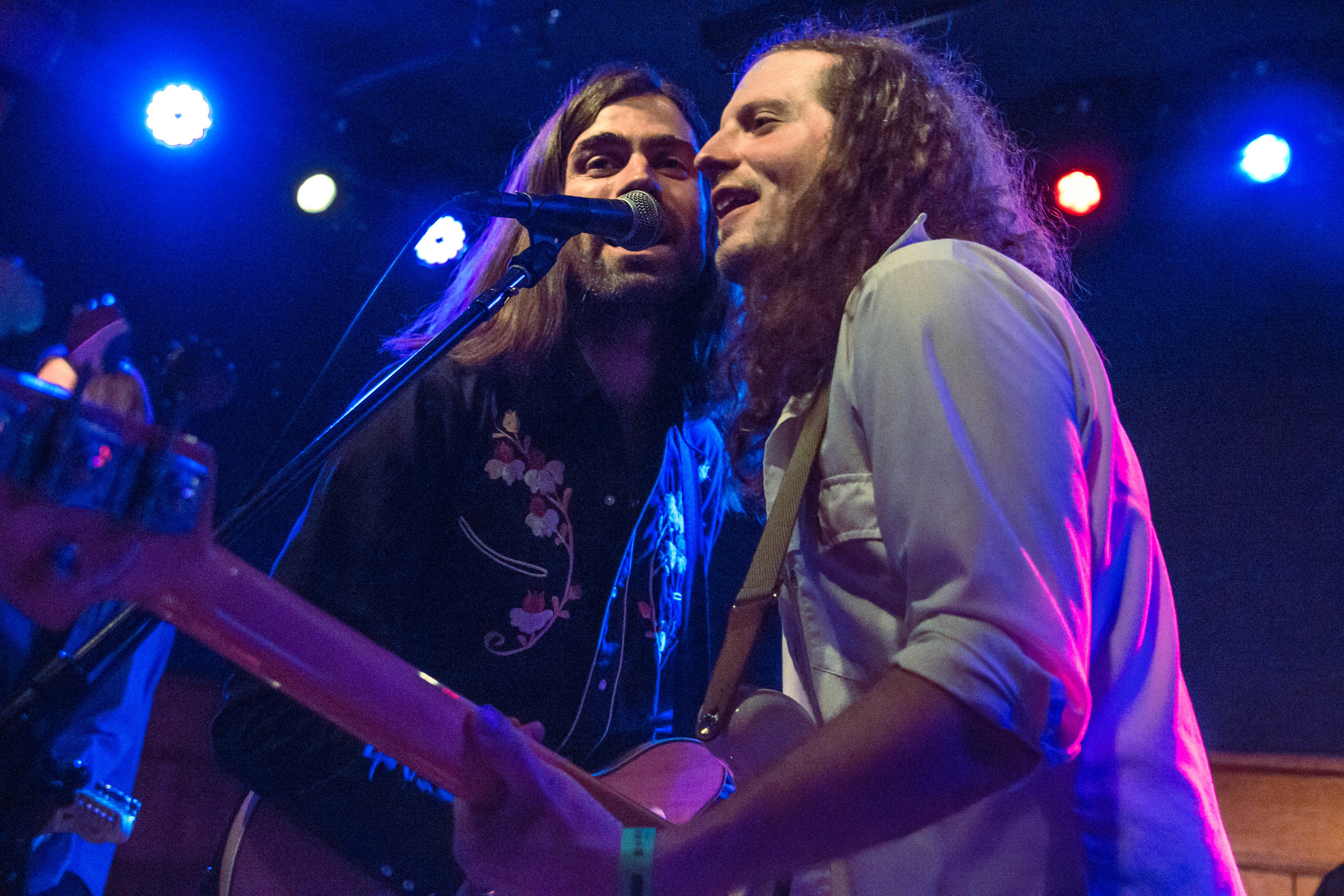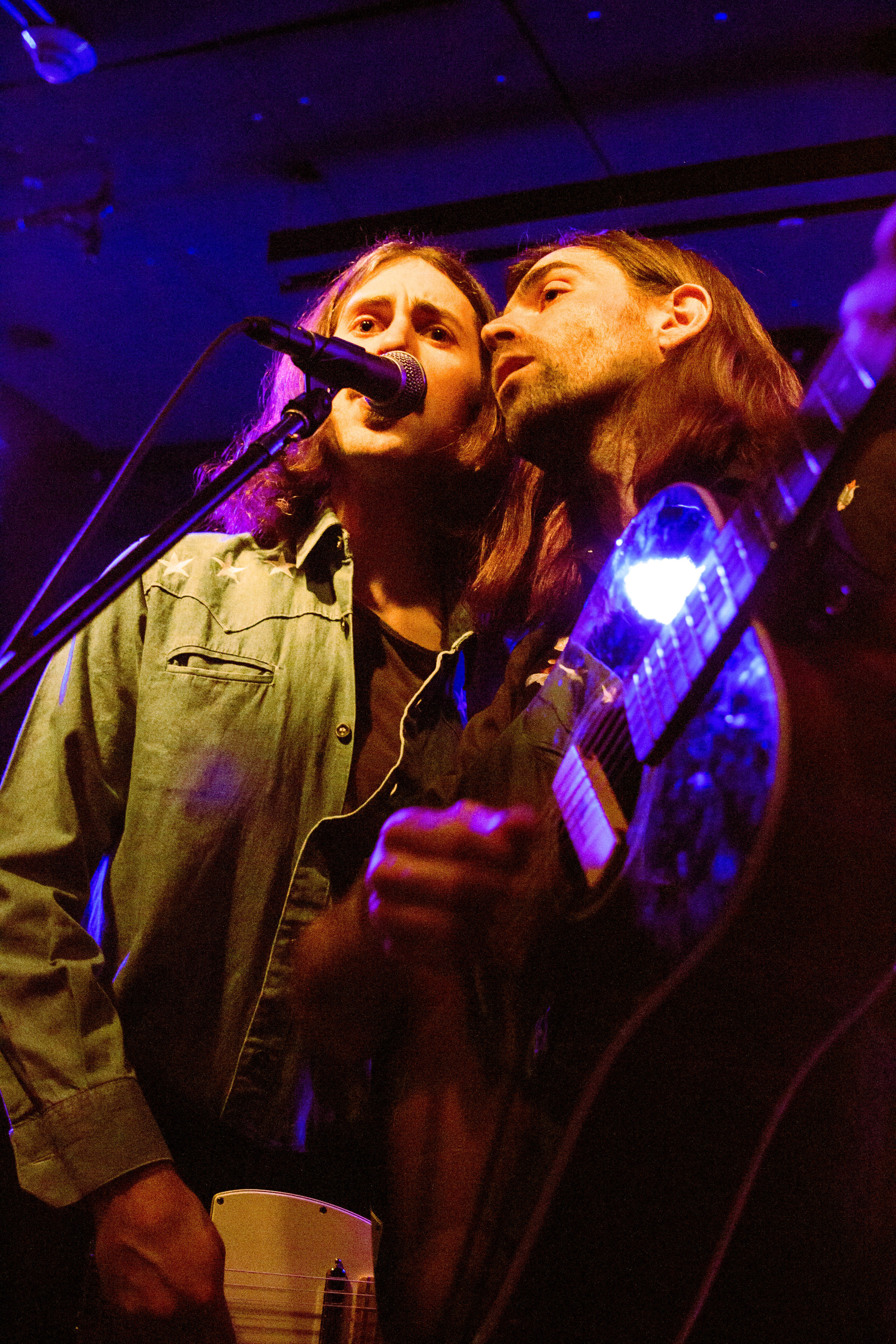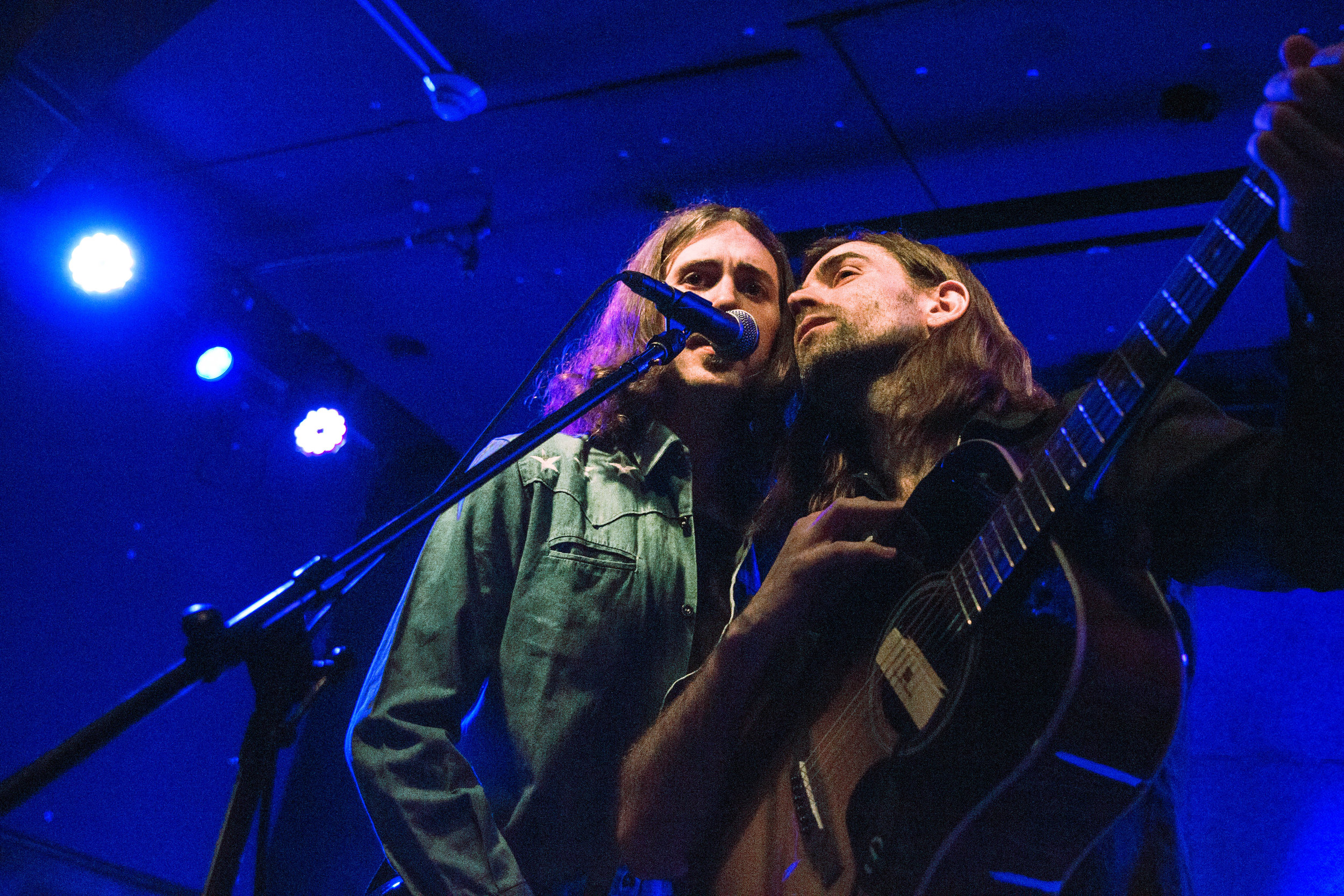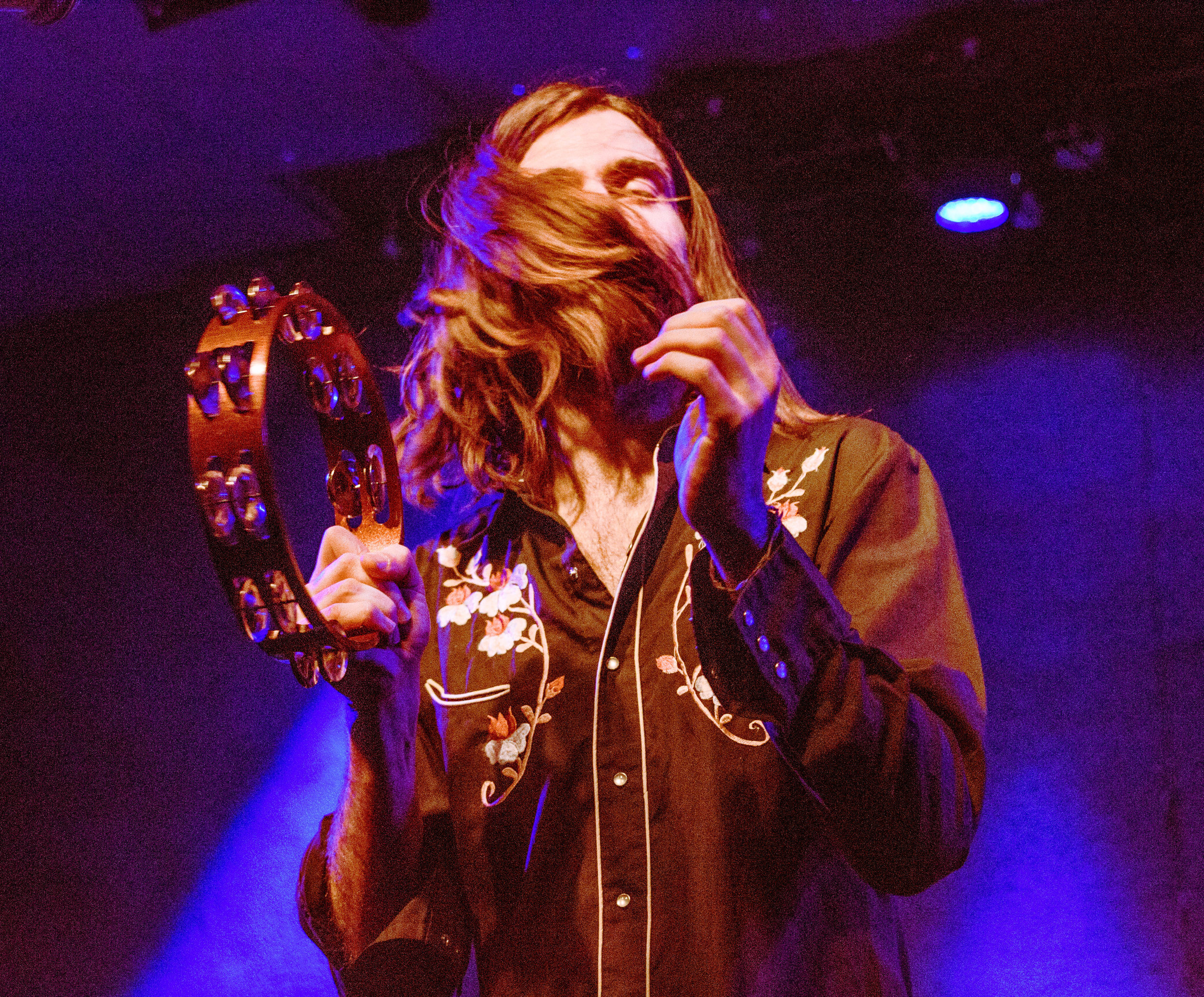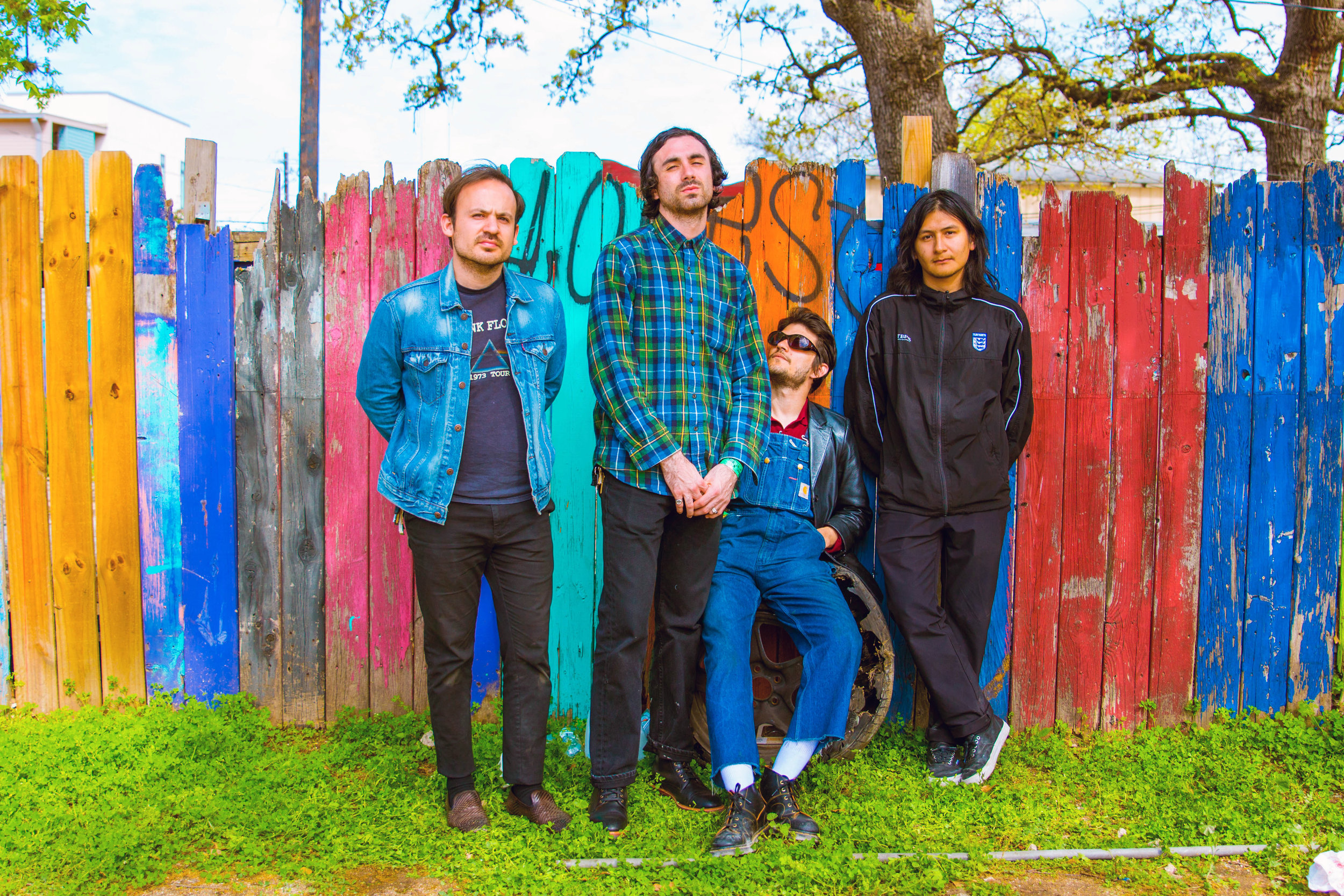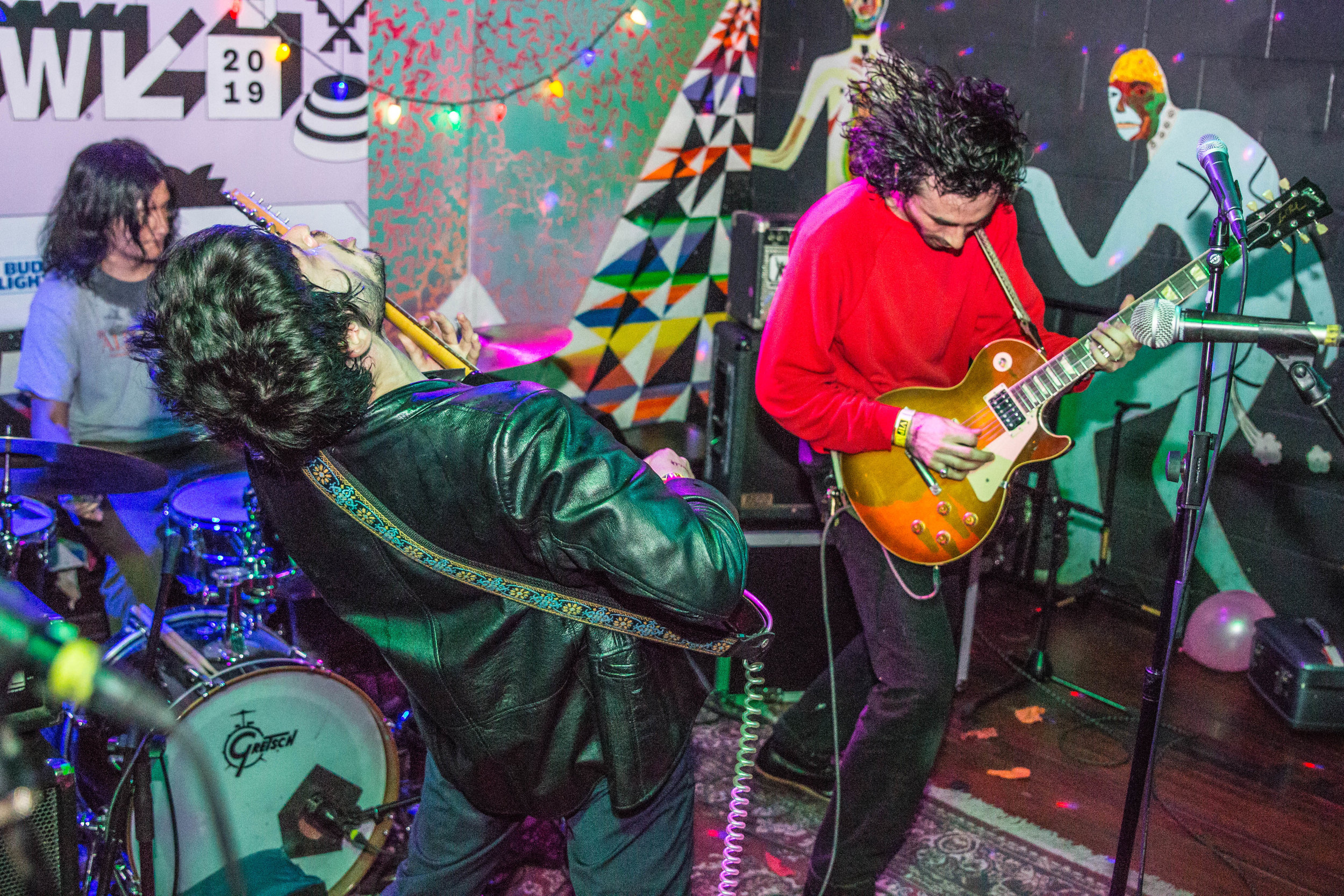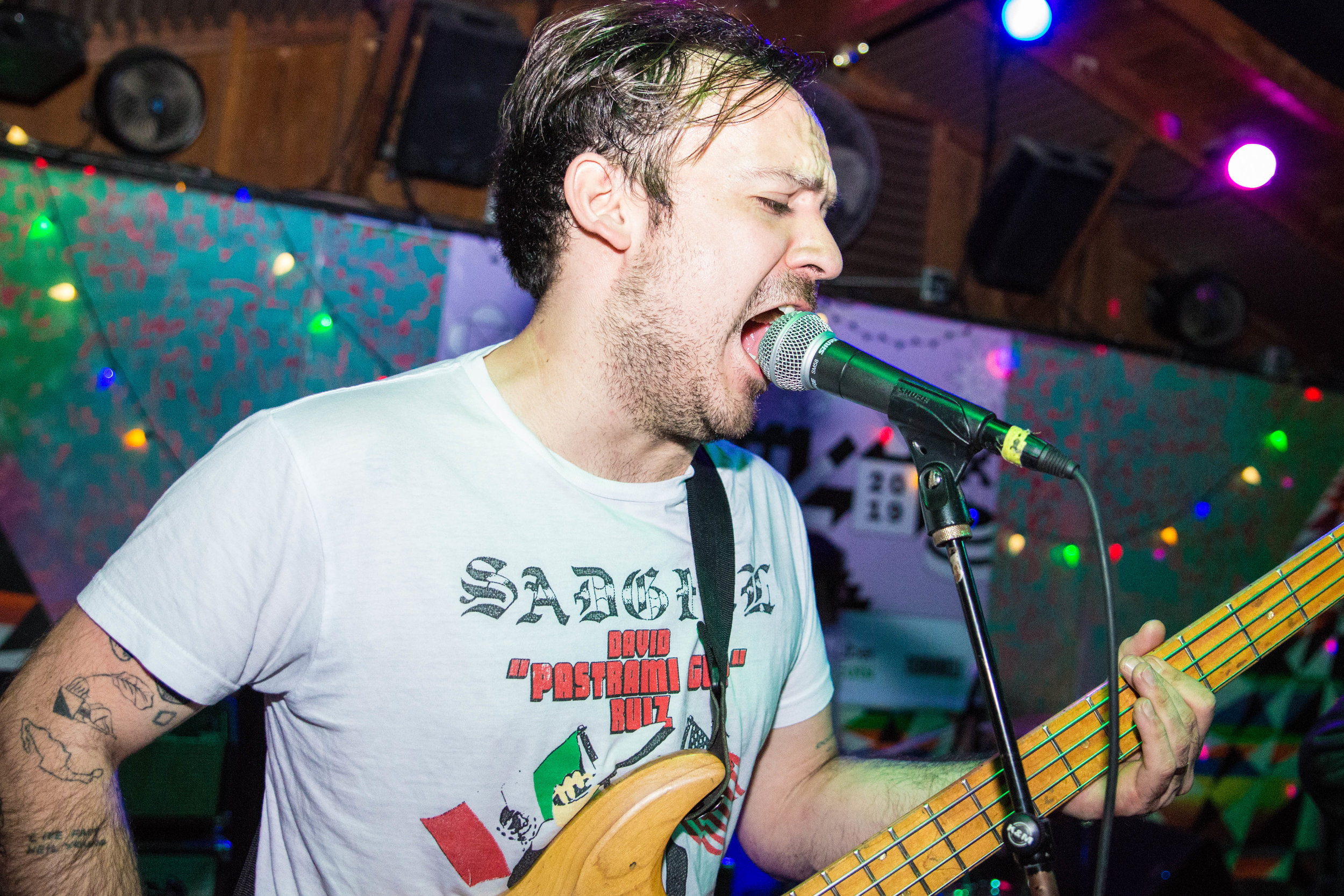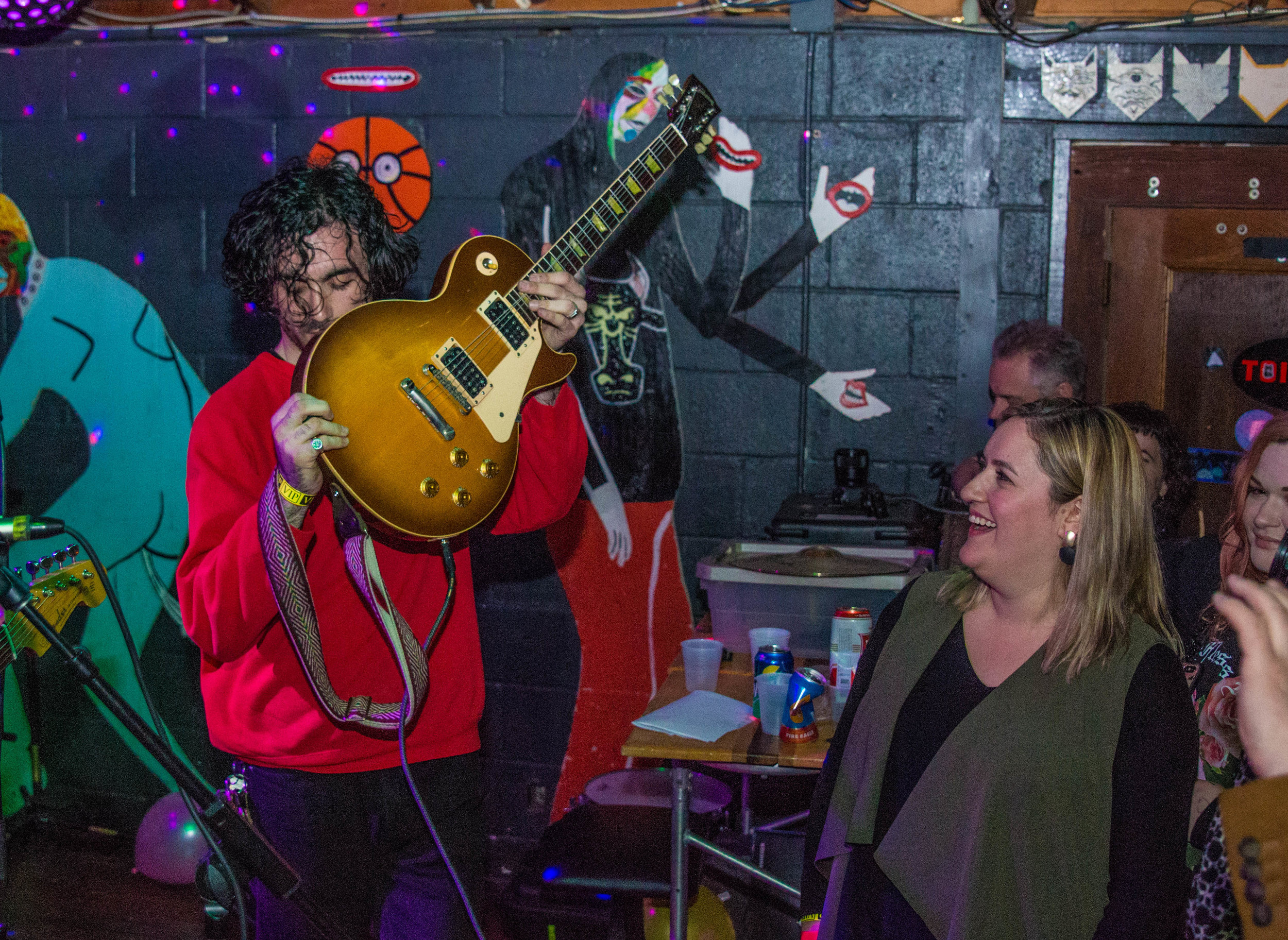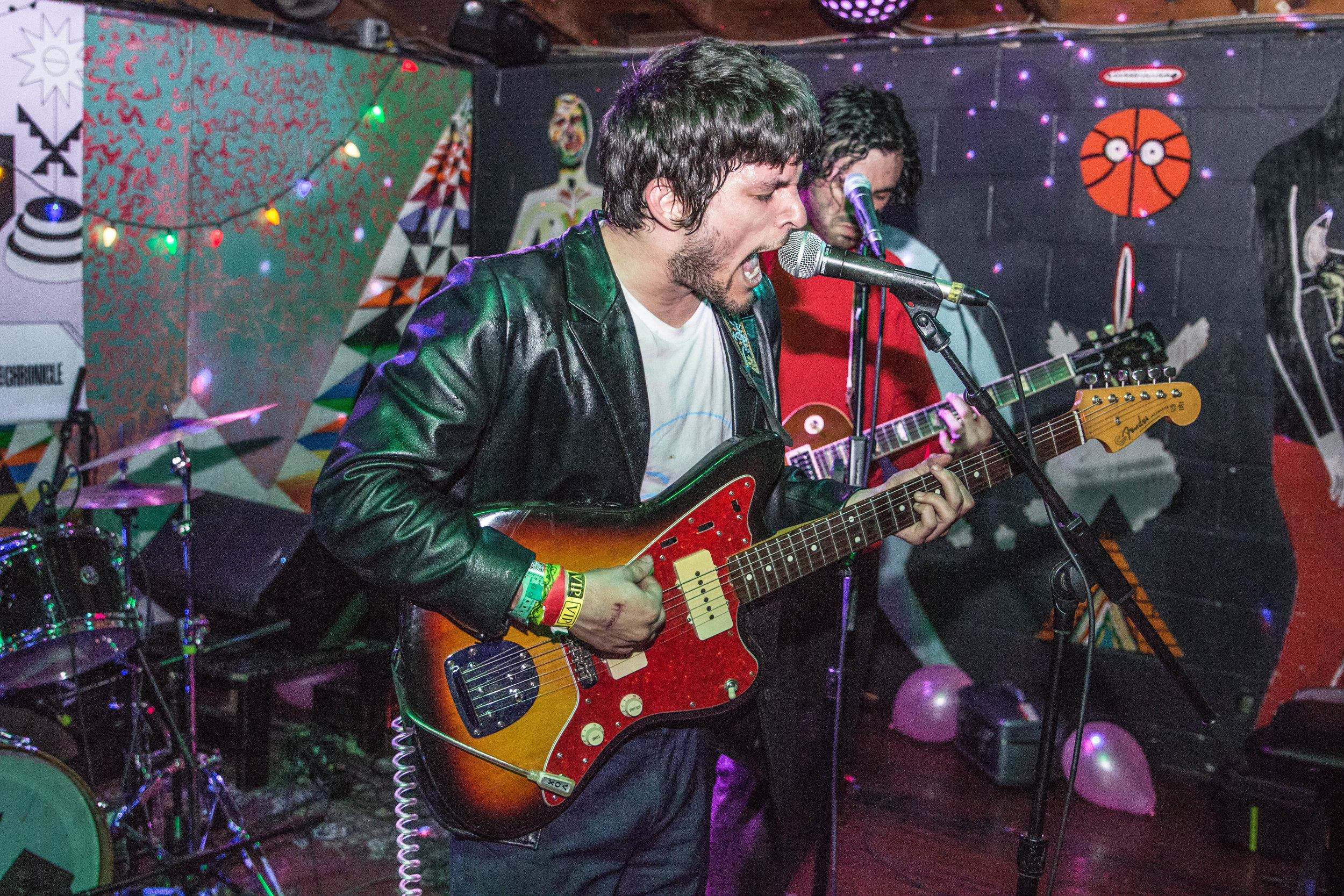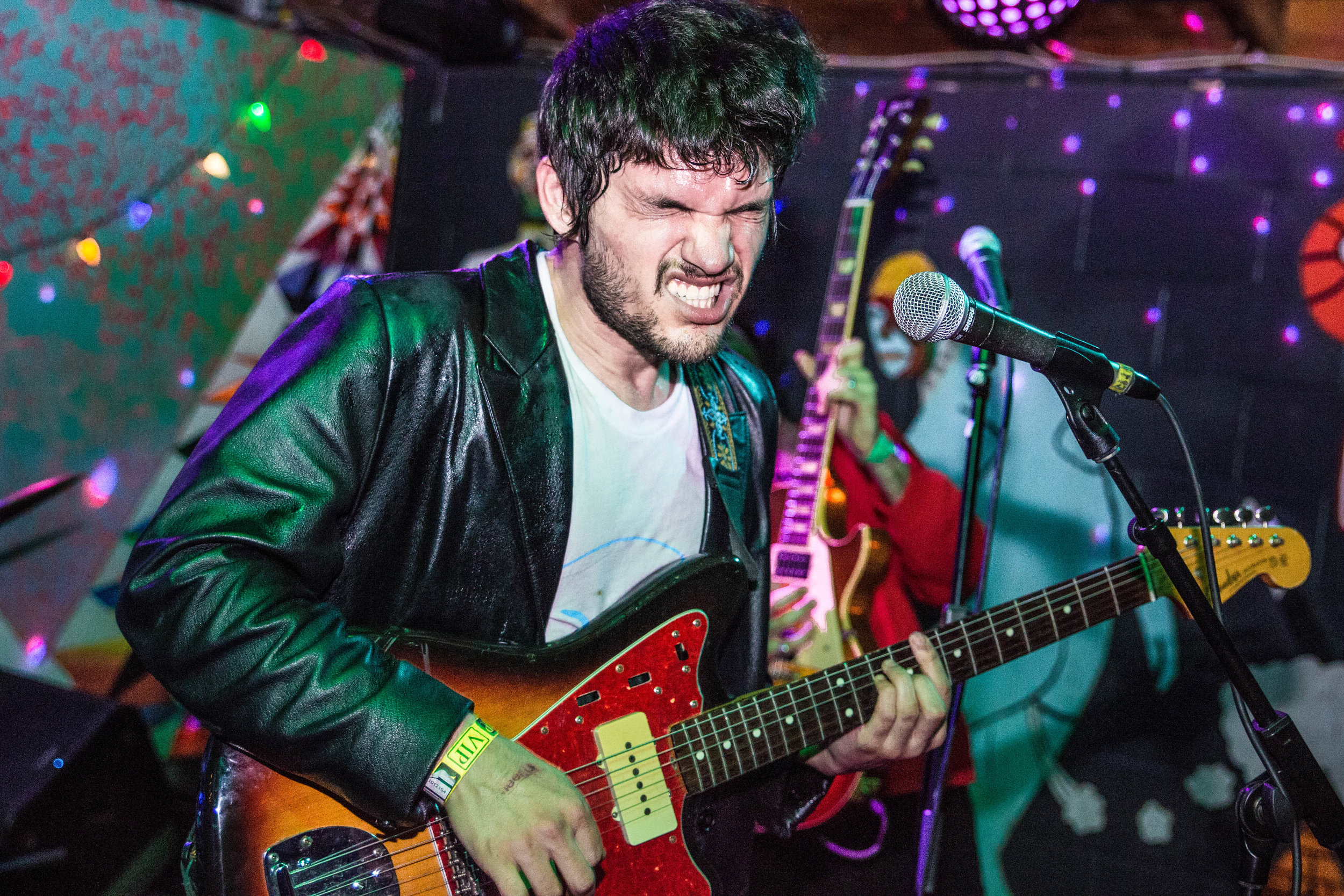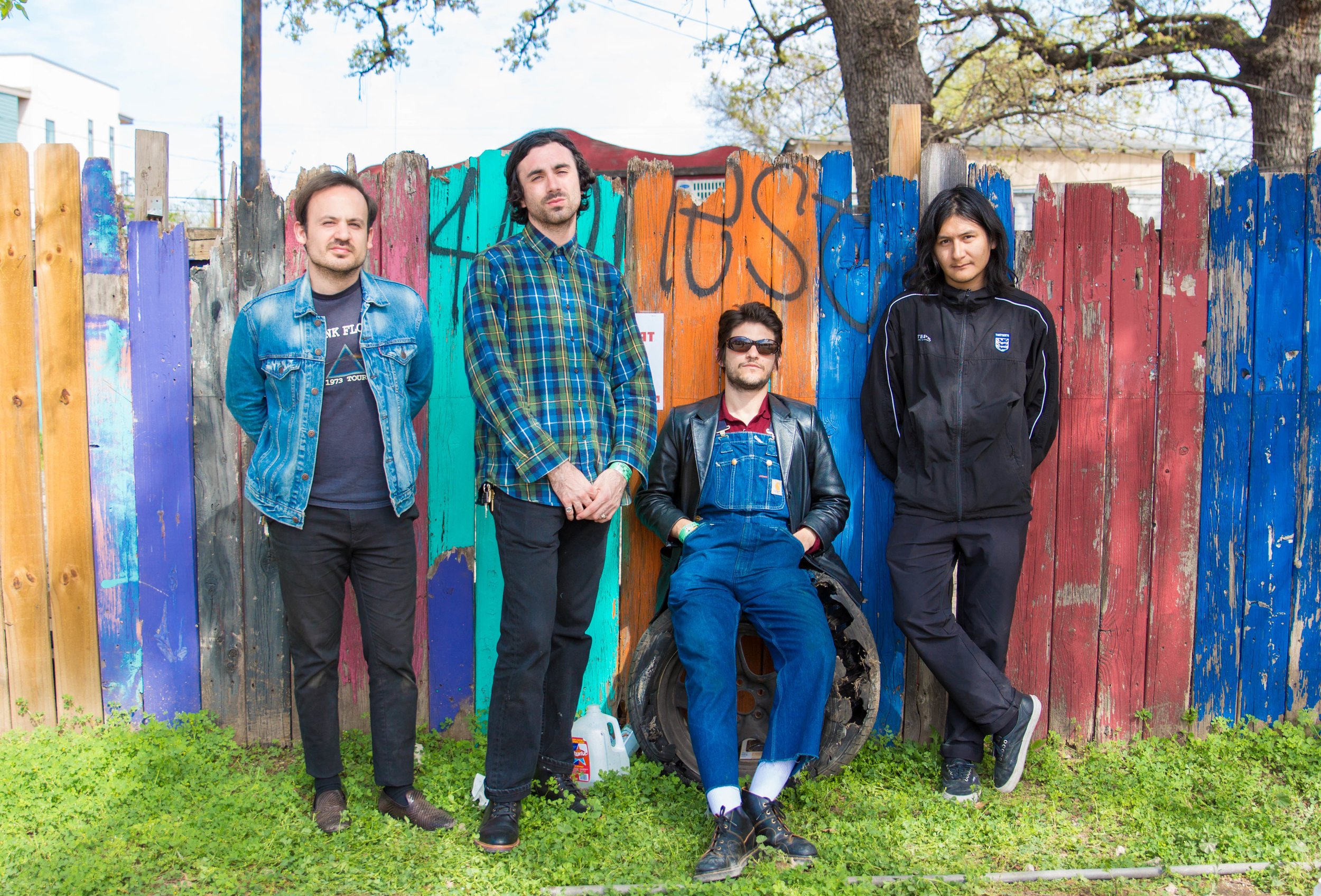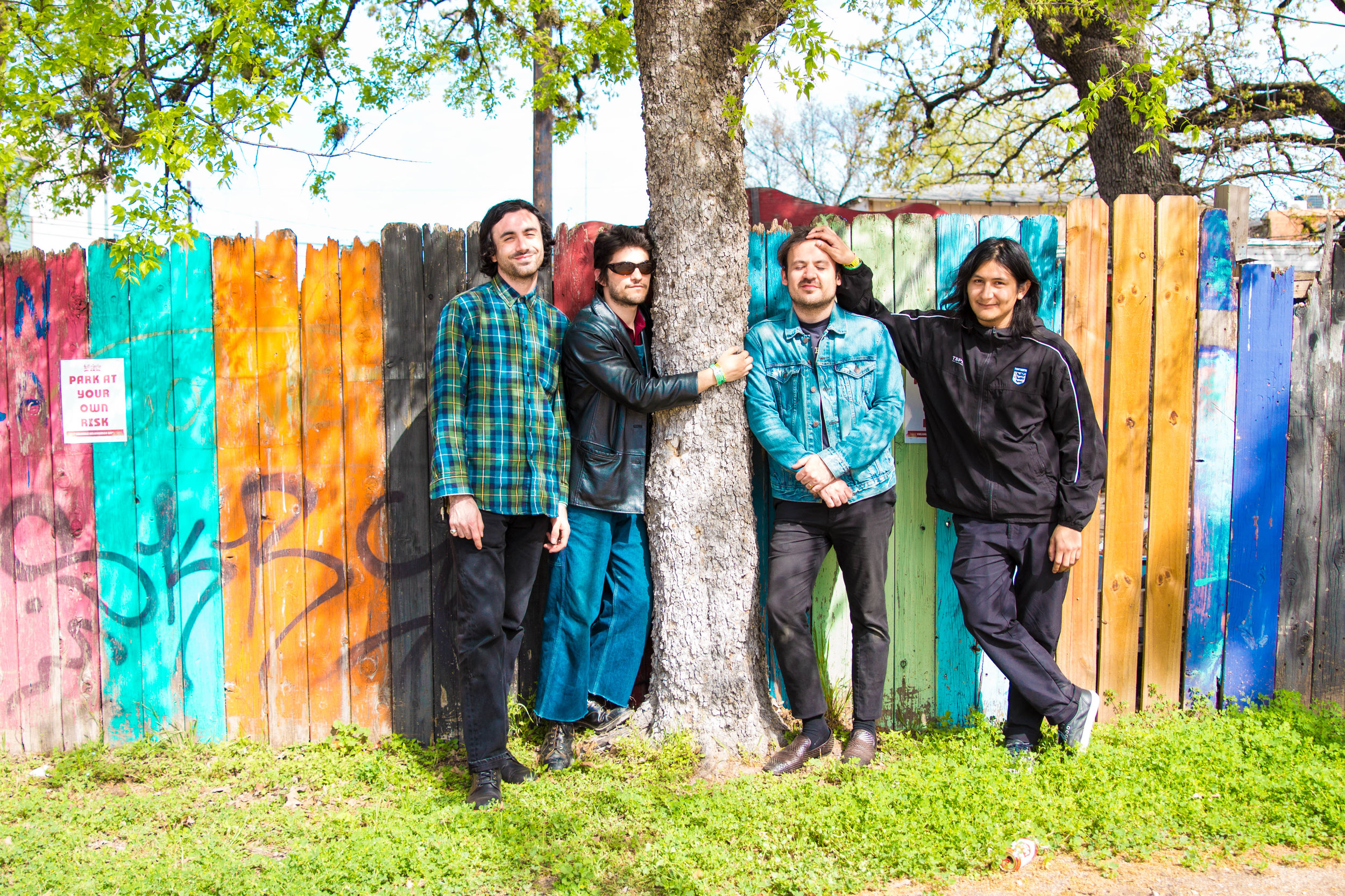A Chat With: Post Animal
Post Animal is on the brink of releasing their third album, Love Gibberish. The record marks both an unchartered era for Post Animal and a return to their roots all at the same time— they’re releasing the album independently after putting out their first two records on the Polyvinyl record label. In a similar fashion, the new songs blend nostalgic nods to influences of past decades while simultaneously conjuring up a futuristic vision. Equal parts whimsical and intense, Love Gibberish layers playful, hazy melodies with massive guitar riffs and an intricate production style. The album has such a cinematic quality about it that listening to it feels like a multi-sensorial spectacle, rather than just an auditory experience.
Photo by Courtney Sofiah Yates
Another factor that adds depth to the world of Love Gibberish is that the five members of the band— Dalton Allison, Jake Hirshland, Javi Reyes, Wesley Toledo, and Matt Williams—all contributed to the songwriting and production, while also rotating between instruments and vocal duties. Similar to the way you can scramble a Rubik’s cube in countless combinations, the members of Post Animal have so much fluidity in their collaboration style that it completely elevates their sound.
Ahead of the album’s release this Friday, May 13th, ANCHR caught up over Zoom with Jake Hirshland, Matt Williams and Javi Reyes of the group to talk about their experience writing and recording the album, their band bucket list, green screen acting, social media and more. Tune into the conversation below, and see where you can catch Post Animal out on the road this spring here.
Kicking things off, can you guys believe it’s been five years since we first met and interviewed? It was in January 2017, so it’s been a long time.
Jake Hirshland: Where was that first interview?
The Hideout!
Matt Williams: That’s right, I was gonna say it was definitely at a venue.
JH: Oh yeah we were in the green room at The Hideout! Wow what a trip.
MW: Was that… I don’t want to call it Psych Fest—
It was literally called Psych Fest! I just looked it up.
MW: I don’t want to say Psych Fest but it was!
Yeah, good memory! So not to put you on the spot, but looking back at these past five years, is there a highlight or bucket list item that you guys have accomplished as a band that you would call out?
JH: I mean for me, we got to play in Europe right before the pandemic. Thank goodness that was the time it happened, but we got to play in Europe opening for Cage the Elephant and we got to play some big venues that were kind of like beyond what I had imagined we’d play. Even in the dream portion of my mind, the venues weren’t that big. That was incredible and exceeded my goals. Some of those spaces… especially doing it in Europe. At least for our live shows, that’s a big highlight for me.
MW: That’s pretty much the same for me. Opening for Cage the Elephant was– it doesn’t even sound real to say now. Like I don’t believe that we did that.
Yeah, it’s beyond the bucket list!
JH: This new record coming out, I feel like it’s highlight status because I didn’t ever really expect us to be in a position to independently release a record and have the ability to do everything that we want with it. So that’s cool to finally have put in the time with it and made the plans and had the experience to have a full record release with every piece of the puzzle completed on our time.
I had some questions about the new album, so perfect transition! It’s coming out in two weeks, and from what I understand, you guys all got together and wrote it at Jake’s family farm. Can you talk more about that experience on the farm and any highlights of that time you spent together?
MW: The farm is just a really special, magical place. In the modern age, it’s nice to have a place to go to where you feel like you can decompress and so to speak “live off the grid.” I think that might have been the first time we spent, we had gotten together for the Levitation sessions, but that might have been the first time we spent 8 or 10 days together purely just to focus on a new project. So it had a very relaxed feeling and it was good for the family to get together and spend that much time together. To really just have to– not worry about anything—I was going to say just to worry about writing new songs, but it wasn’t a feeling of worry. It was a feeling of inspiration and a lot of ideas flowing. It felt really magical, especially because at that point it was a year and a half or something of pandemic life. So just to get away and only think about that music.
Yeah, sounds like a low pressure chance to hangout and focus on music. So I remember with the first album when you were recording at the lake house, wasn’t there some paranormal activity?
MW/JH: Yeah!
Did anything like that happen this time?
JH: No, the farm is not a haunted space! That’s a place where I’ve really put it through the wringer. I’ve been out there alone, and spent a week out there sleeping alone and nothing spooky seems to happen out there. That would be fine if there was a little friendly ghost out there but I don’t think there is.
MW: There’s visitors but they’re just human! Oh and there’s some animals. I think we spotted a badger—
JH: It might have been like a big what do you call it? A muskrat?
MW: Yeah one of those wildlife.
JH: I don’t think it was a badger.
You kind of touched on it already, but this album is being independently released, and the band has been very hands on with self-producing it. I believe Dalton did the mixing and engineering and then did you do the mastering, Jake?
JH: Oh, my brother did it.
Ah, I think I read that too quickly!
JH: Yeah, my brother Jared did it, on paper that could look like me. I wish I had the skills! He did the mastering and then Dalton mixed and engineered. We also had a new friend Jack Henry come in and do some engineering for us at Palisade. We did about half of the recording at Palisade Studios in Chicago so Jack Henry was really helpful for those days. Dalton kind of manned the helm and that was the audio team.
[At this point, band member Javi Reyes joined the interview ]
What would you say were some of the challenges of recording and releasing it independently and on the flip side what were some of the rewards of being so hands on?
JH: I feel like there are challenges continuing forward, there’s a lot of decisions to be made and there’s not anyone necessarily telling us what to do. We do have a good team who’s all hands on deck and thinking about what we need to do, but I guess things could slip through the cracks if we aren’t on the ball. So that’s definitely a challenge.
MW: Yeah, it’s logistical stuff. I feel like a label helps with a lot of the support. Even merchandise, it takes care of that. The website and assets for social media, too.
JH: It’s all stuff we used to do on our own, so it’s not like we’re completely new to it, but we sort of passed off the reigns to the label for a couple years. Logistically we would just ask if we could do stuff and their staff would usually take care of it. Like ordering a new t-shirt and all that, they would help with. So now if we don’t look closely and comb through everything, we just have to be a little more careful. I think we have been, though! My answer to the second part would be pretty much the same. I think us returning to laser focusing on every element, has made the quality really good. I’m really happy with it. Our merch coming out is my favorite merch we’ve ever had. I’ve always loved the designs but this one is no different, I love the album cover.
Yeah it’s a little more personal touch from the band right? Any other feedback on that from Matt or Javi?
JR: Yeah totally, everything now has our stamp on it. It’s cool, and we’re even doing more than maybe has been done in the past. Yesterday we went and put up posters with wheat paste around the city. That was fun. It’s fun to be hands on and scrappy with it.
MW: Yeah it’s like we’re our own marketing team in a way at a certain point. I guess another thing that changes is we have to directly hire a publicist, instead of having a label be the in between. Those promotional kind of teams. But doing things like putting up those posters with wheat paste, and just being scrappy and having to do a little bit more work, but at least knowing everything that’s going on. It gives you more insight into what you need to do to take care of all aspects of the band, you know? It’s informative and good to get that experience! Otherwise we’d probably be lacking in that department.
JR: Yeah I can see from the other guys that everybody else is way more dialed in and focused on getting things done. There’s always something to get done and we’re really moving and grooving like a little business.
Nice, coming full circle with all hands on deck! Talking more about the record, there’s been a few singles released. I really like the video for “No More Sports.” It’s set in the future, 2038 to be exact. Can you talk about that creative concept, like who came up with that and how it all came together?
JR: Yeah that was all New Trash, the film company. They came up with this idea to have this big show and the dinosaur and the dragon. The whole thing was their idea! They came up with the year 2038—everything! They’re great to work with. We did it in about 6 or 7 hours and this green screen studio that they had arranged for us to go to up in Jefferson Park. We just cranked it out. They have a 3 person team, and one guy was the main director and he was giving us tons of great direction. Everything just moved really smoothly. They have an editor and CGI guy, so as a team they’re great!
MW: Do you know that filmmaker? The New Trash crew?
I hadn’t heard of them before but the video turned out amazing!
MW: They’re super super cool. They’re big on animation mixed with real people, so like Javi said, the green screen work. Then their animator, Nat, is just unbelievable. It’s kind of crazy what he can do. They work with a lot of musicians and music videos. I’m not sure if they do things unrelated to music.
JH: We did a full day of a lot of fun little bits but they just carved something amazing out of it. It’s hard to believe they were able to make something like that out of what we did together. They have the special touch. I feel like they’re a hidden gem and I’m so stoked we got to work with them.
Yeah it turned out really well! Was it challenging to act with the green screen?
JR: Kind of! But that main director was like “Come on! Scream at us! You’re playing in front of 100,000 people! This is the biggest rock show of all time!” So he kept yelling that at us and directing us to jump and kick and so that definitely pushed all of us to our ceiling of energy. That helped. If he had just been like “do you thing” it would have been harder to know what’s the appropriate maximum of energy, but there was no maximum in this case. It was just go as hard as you can.
That’s awesome! Well the music video is also a little bit of a throwback to 80’s hair bands, so if you could tour with any 80’s band, who would you pick?
MW: Oh, like every one of them.
JR: Toto! And I think they actually do still tour.
JH: Toto if you’re listening…
MW: We’re manifesting Toto!
Putting it out into the universe. Well speaking of tour, yours kicks off next week. How has it been turning all of these new songs into a live show, and what else can you tease about the upcoming tour?
JR: Jake has a new MIDI controller.
JH: Oh yeah. We have a little more samples and stuff like that, so that should be some fun atmospheric elements being added to the show that weren’t there before. That’ll be fun.
JR: Dalton has a new vocal pedal that sounded pretty great!
JH: Yes! We’ve been practicing these new ones, we’re trying to put a bunch of new songs in the set. The record comes out while we’re on tour, so people that go to the shows should expect to hear some brand new, never-before-heard music. Which should hopefully be enjoyable for them.
MW: It’s super exciting to practice the new stuff. I think we’re all amped to play them, which is always good cause it sets a nice tone for excitement.
JH: I think we have one of our most exciting and craziest songs ever, that we’ve ever written on this record, that we’re going to begin playing this weekend in Mexico. That one is going to be a hoot live.
Which song is it?
JR: It’s called “Infinite Zone.”
JH: Yeah we’ll be playing that one for sure, it’s going to be fun live.
Has it been challenging to transfer some of these to a live sense?
JR: Some of them, but not that one because we worked so hard on it when we were recording that it got cooked into our brains. I think when things are more groove-based, it can be a little harder to lock in. Just like in a game of Horse, when you’re right in front of the basket, it’s harder than you think, but the trick shots come easy.
MW: That’s a really nice metaphor! I like that a lot. So spot on. Simple is difficult.
That’s so poetic! Well in general, what other music have you been listening to, particularly during the years of the pandemic? Anything that inspired you?
All: Turnstile!
JH: A bunch of us got down a big rabbit hole just with everything about that band. It seems like a very popular opinion these days cause they’re blowing up, but that was a big one for sure!
MW: Yeah they really affected me, in a good way. I also really like Charlie XCX’s new album.
JR: So good!
MW: It’s incredible! I’m blanking on the name of it right now.
JR: Crash!
MW: Yes. Those two have probably been the most listened to albums for me in the past 6 months to a year.
Nice. Then I wanted to ask you guys about your Tik Tok. I know most people got into Tik Tok over the lockdown and pandemic, so last week I went down the rabbit hole of your Tik Tok and I love the video of Wes being like “What does your band sound like?” and the “Nightmare Tour Scenarios.” Are these based on real life experiences?
JH: Definitely, they are.
MW: You could say they were influenced by true events.
JH: They’re loose retelling based on a few characters we’ve met over the years. The mustache one is absolutely true-blue–
MW: Facts!
JH: But we’re just playing around, hopefully it’s all in good fun.
Oh yeah, I got a good laugh out of it. Anything else on the creative Tik Tok docket for you guys?
MW: Content, content, content!
JR: I was just told that we should remake some “Honey I Shrunk The Kids” scenes with myself as Rick Moranis.
I can definitely see that!
JR: I was told it would go viral, so maybe that’s the next thing.
JH: That would be amazing. We have a running list of these kind of inspirational fellows on Tik Tok that tell you to know your worth.
MW: The know your worth, seize the day kind of thing.
JH: We want to try that, almost like Gary V kind of spoofs. We just have a bunch of stuff like that. I’d love to have some more fantasy content on there. Or scenes from Middle Earth to pad the Tik Tok.
Yeah we’ll have to see what goes viral! It’ll be interesting. I saw some “Cancer Moon” posts yesterday and some viral jokes.
JH: We’re tongue and cheek with the viral stuff. It’s funny how important that is for music nowadays. None of us have really any idea how to craft a viral post so we’re just messing around.
MW: That’s the goal, let’s just state it.
Yeah it’s hard to crack that Tik Tok algorithm.
JH: Yeah it’s a struggle to feel like we’ve got to get a Tik Tok post, and everyone’s telling us to post like 10,000 times a day, but we’re just definitely still focusing on doing music first and foremost. It’s an interesting moment for the music industry for sure.
Yeah your Tik Tok content is great, though. I love the humor behind it.
JH: Thanks for always engaging. We appreciate it.
So speaking of “Cancer Moon” I think that’s one of my top 3 favorites from the new record. Can you share a little bit of background on that single or any fun tidbits about making it?
JH: For sure! That one was, we got together, same as the other songs, and demoed it out at the farm, but the original idea for that was made up at the farm. I was there at the farm during covid, quarantining for a little while before I returned to the city. I had my stuff out there, so the chorus is kind of about the farm. It’s farm forward. That was really fun because it was very digital in its original form, and then we all came together and we were doing our writing session and translated a lot of these digital sounding things into guitar parts, or like making them have that real instrument feel from my synthy, demo feel. It really gave it like this 80’s shape to the sound.
Yeah it’s very anthemic! And cinematic. I could see it being used in a big scene at the end of the movie.
JH: Yeah there’s a build! It was very fun to hear how it changed once the band came in. Some of them are written and made to sound like a band when they start and other times it’s fun to hear how the band really changes the tone.
MW: It’s a very fun song to play, it’s one of my favorites on guitar. I feel like I’m playing the video game Guitar Hero. I also love the lyrics and atmosphere of it. It’s positive and feels good, and I hope that feeling spreads to everyone that listens to it. I’m really excited to play that one live.
JR: Yeah I’m very proud of it. I’m proud of Jake. I’m proud of Matt.
MW: I’m proud of Javi! I love having our guitars linked up in ways. That sounds so stupid to say outloud but that’s one of my favorite parts. The dueling dragons of guitar.
Wrapping up, is there anything else you guys are looking forward to with the tour and new album?
JR: I’m really looking forward to the album coming out. I just listened to the first couple songs walking over here and I hadn’t in a while. Now I’m on the side where I can hear it as a listener, and I love it. I’m excited for it to come out!
Yeah it’s nice to revisit it once you’ve finalized it.
MW: I’m excited to have that come out into the world and play the songs to people.
Yeah and it’s nice to be able to tour it. Stay safe out on the road and congrats on the album!
